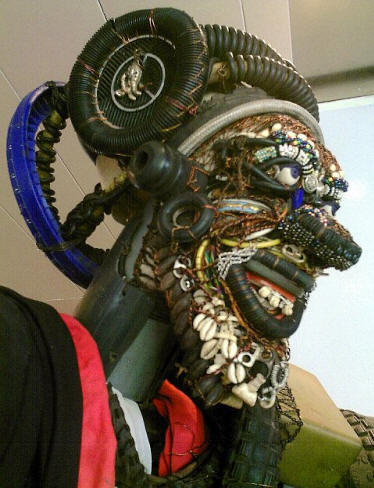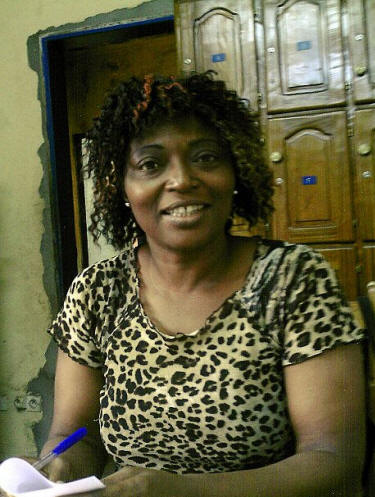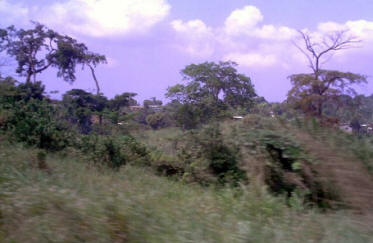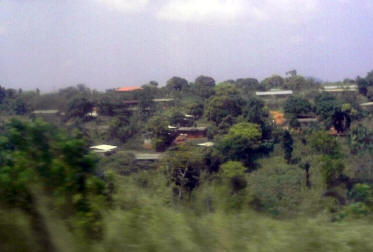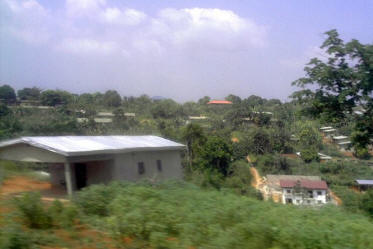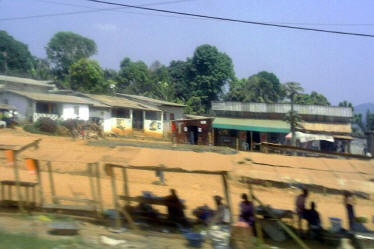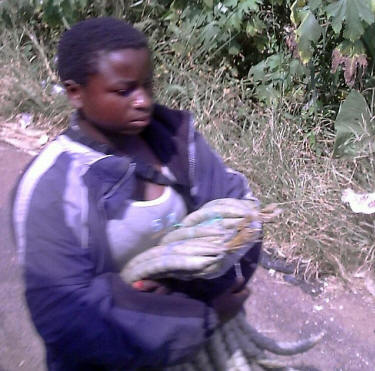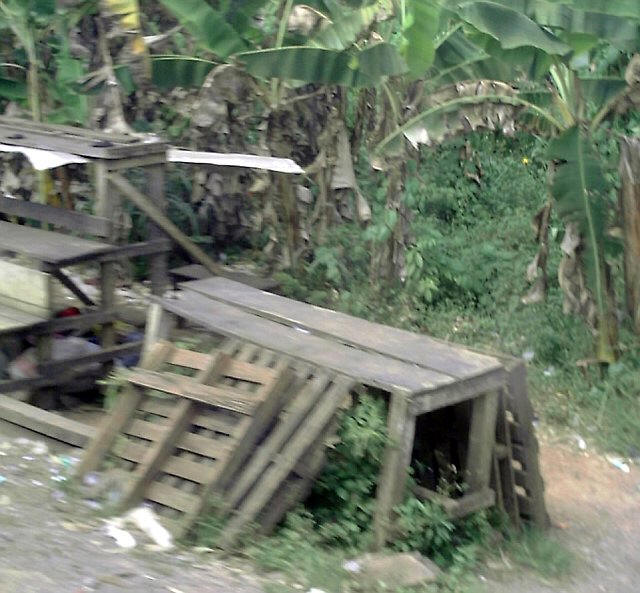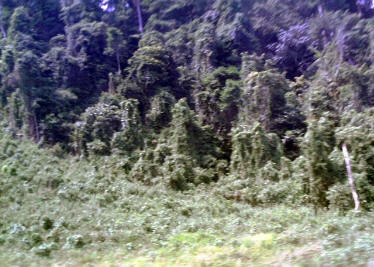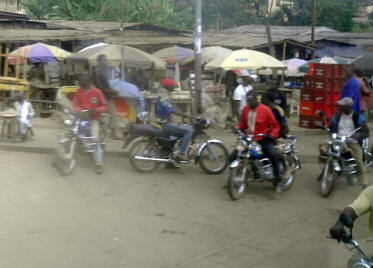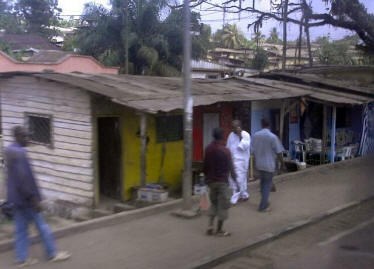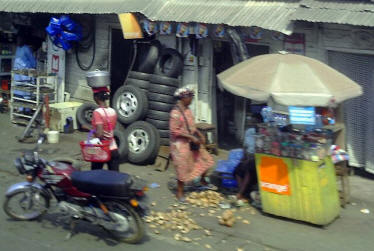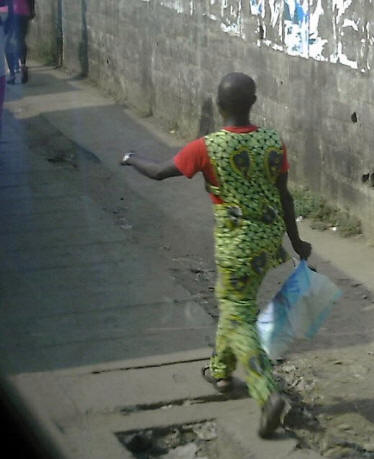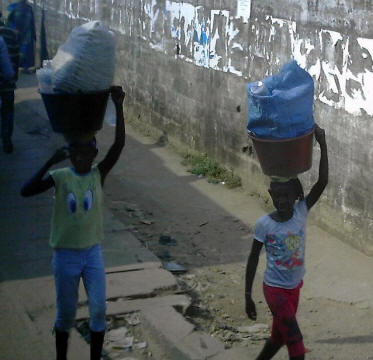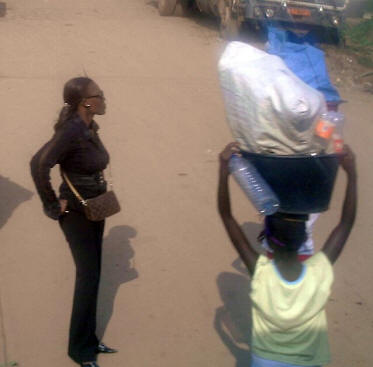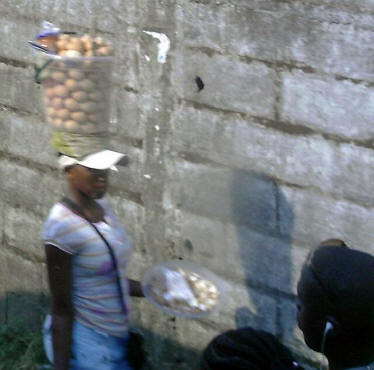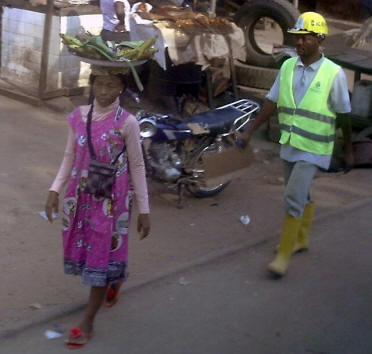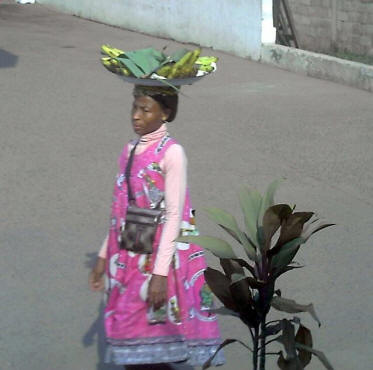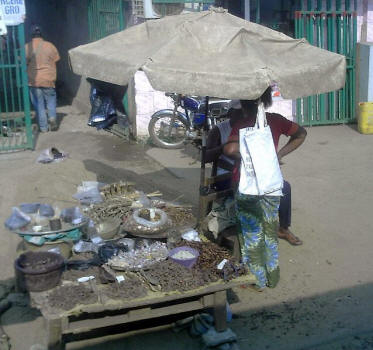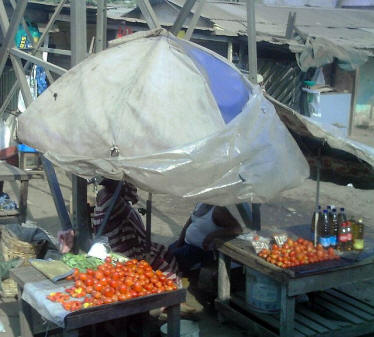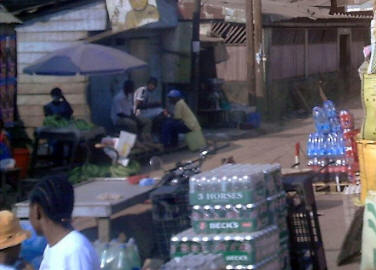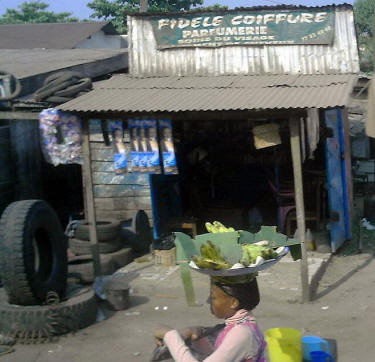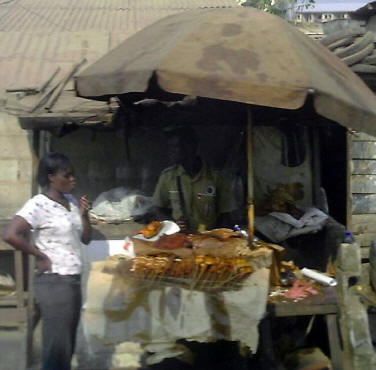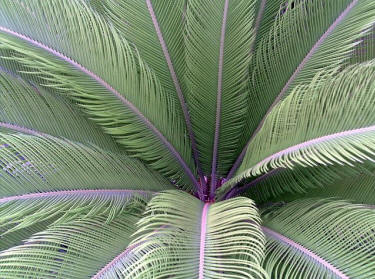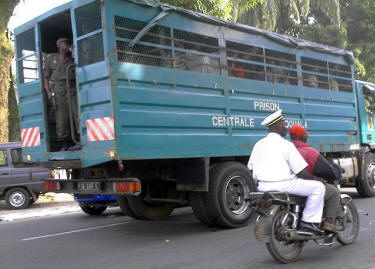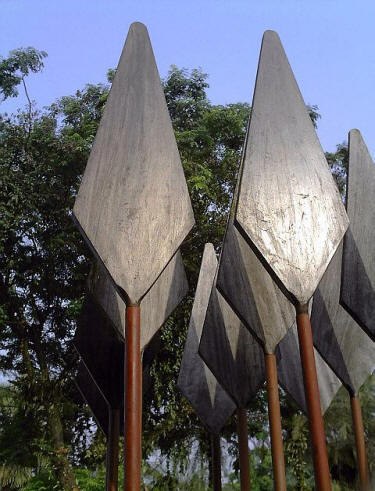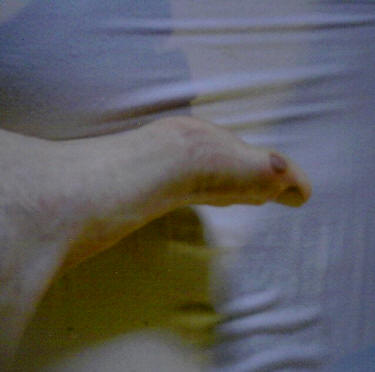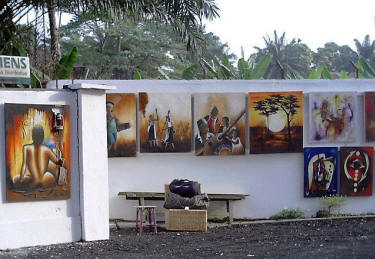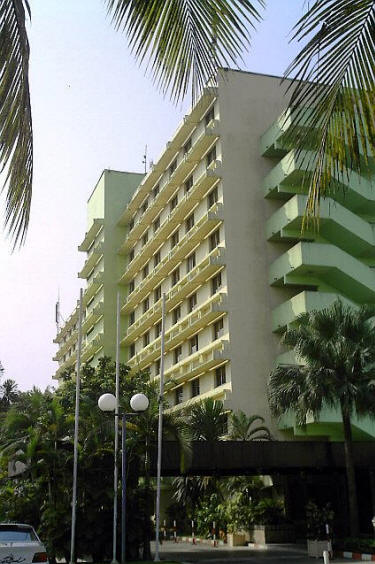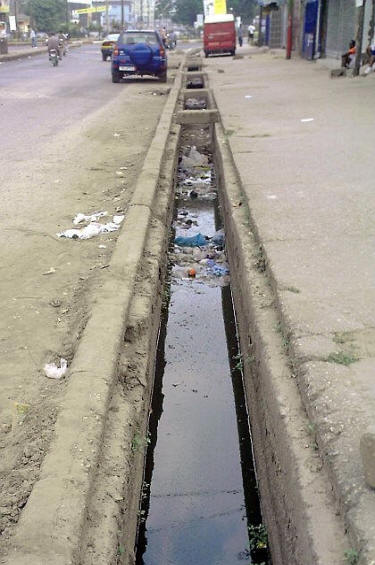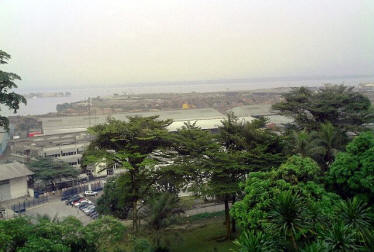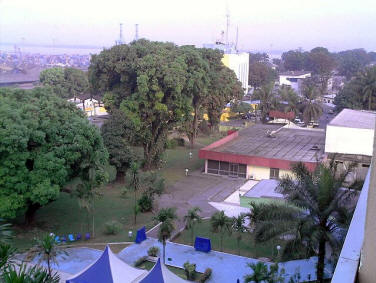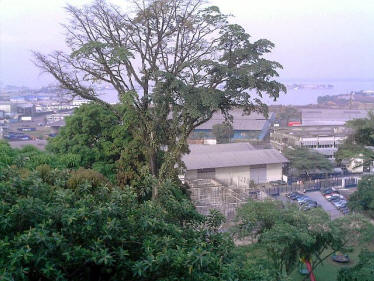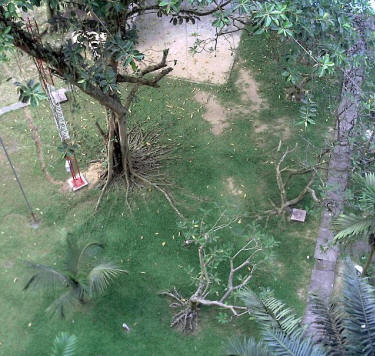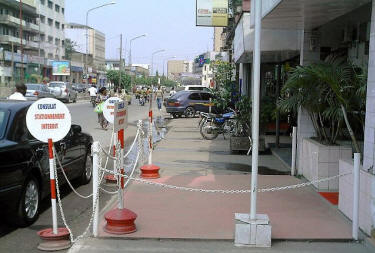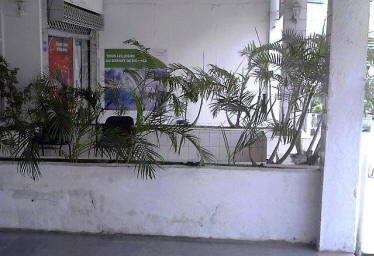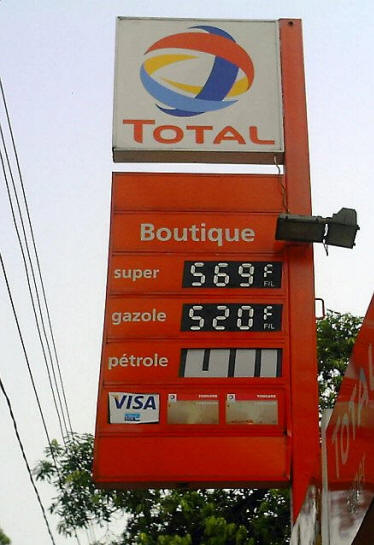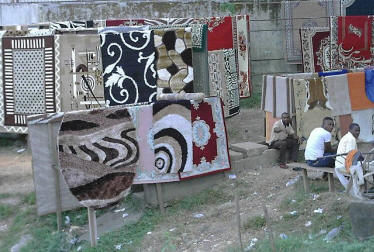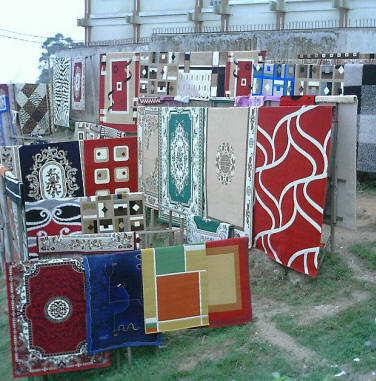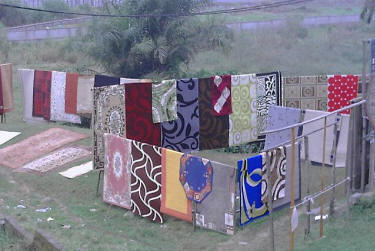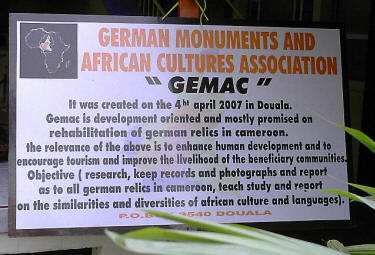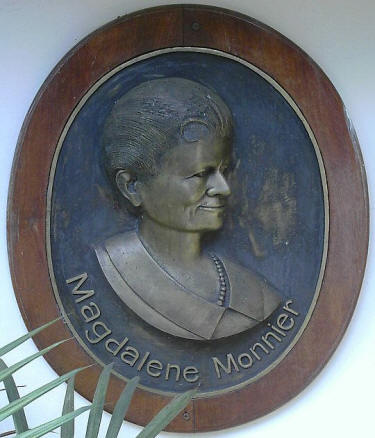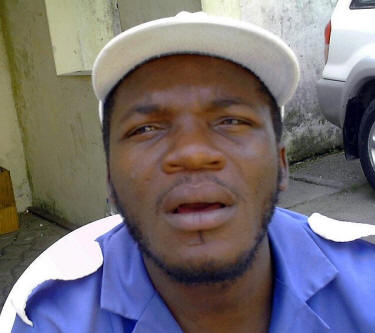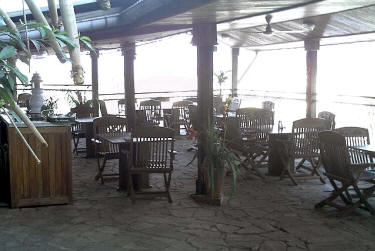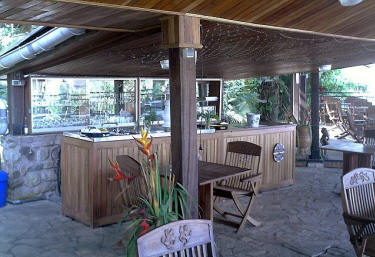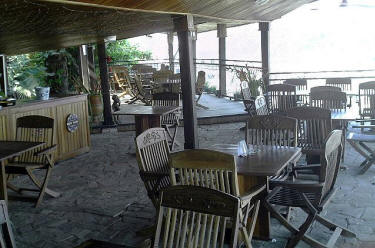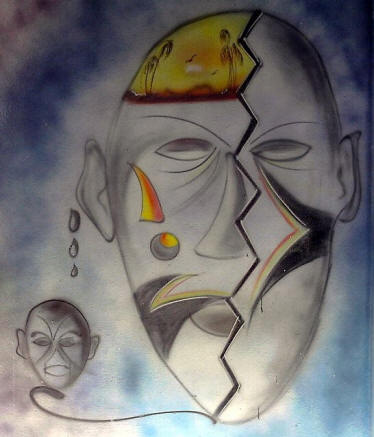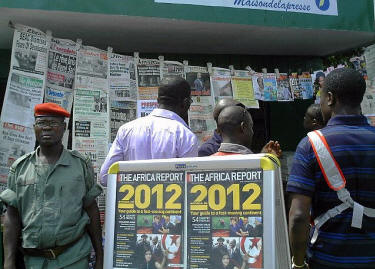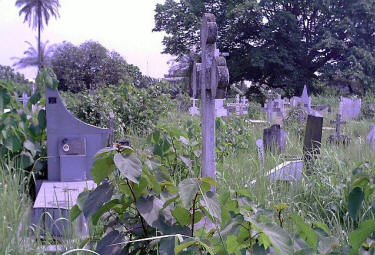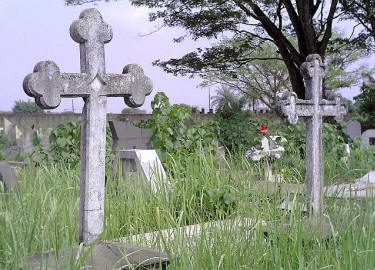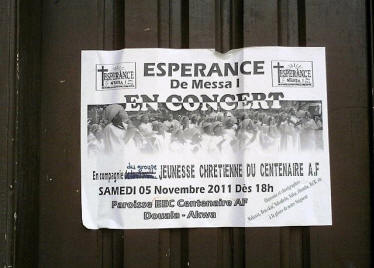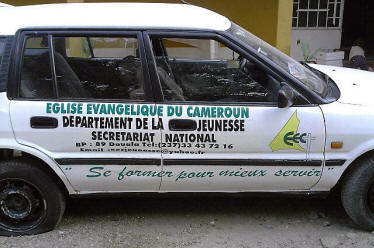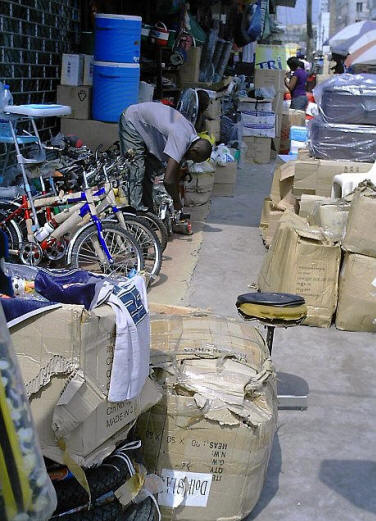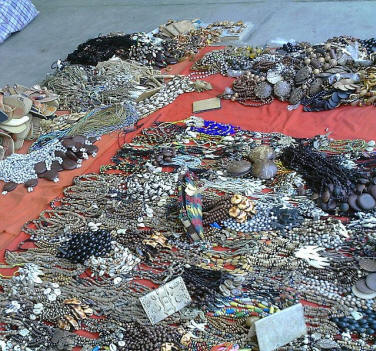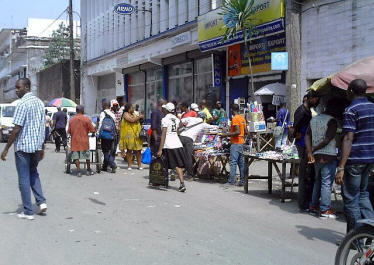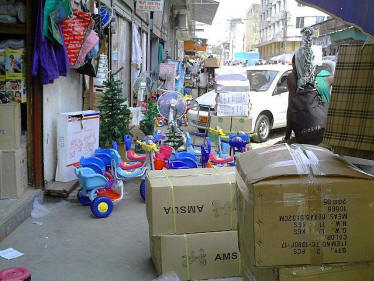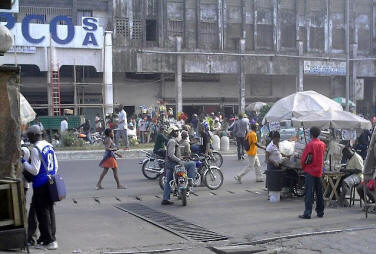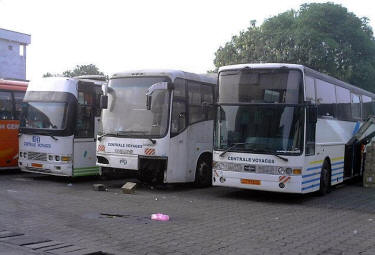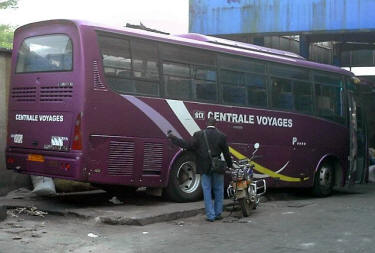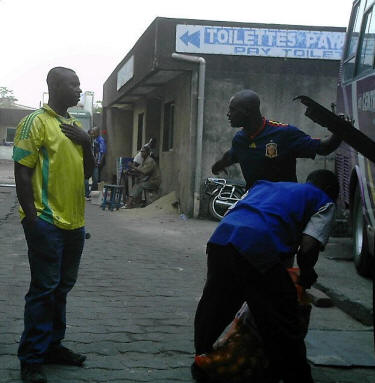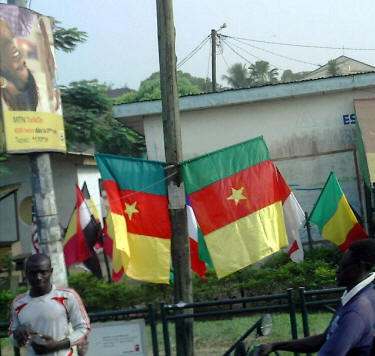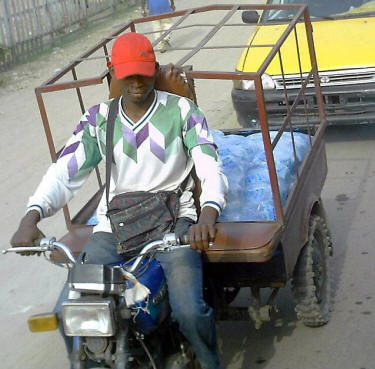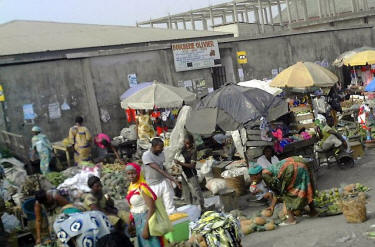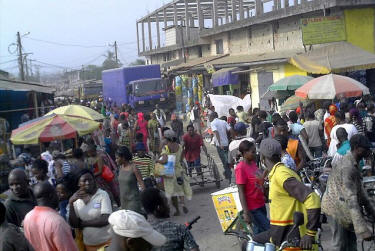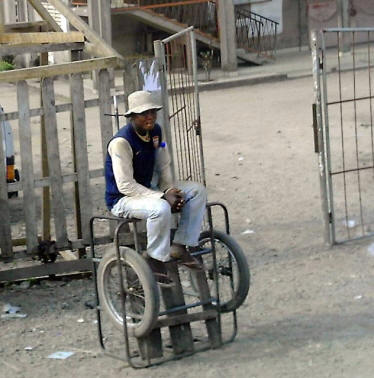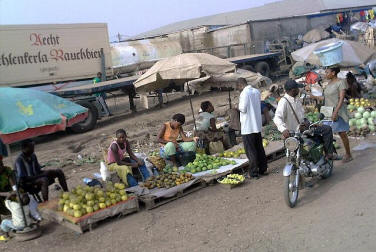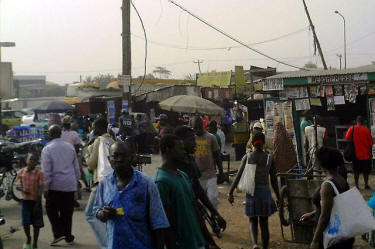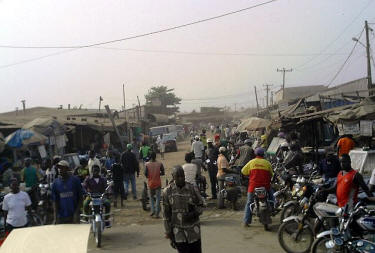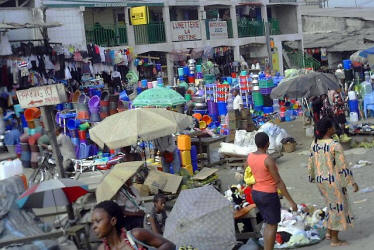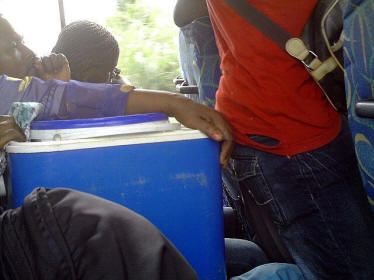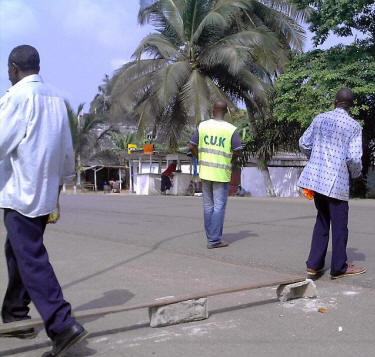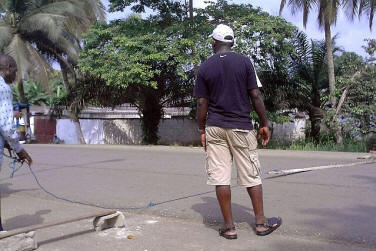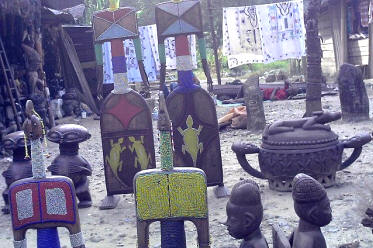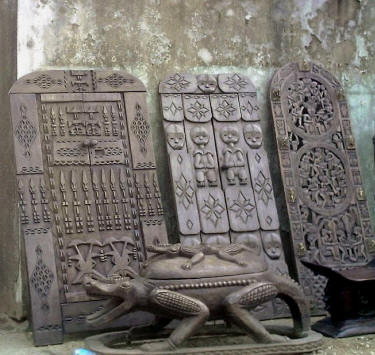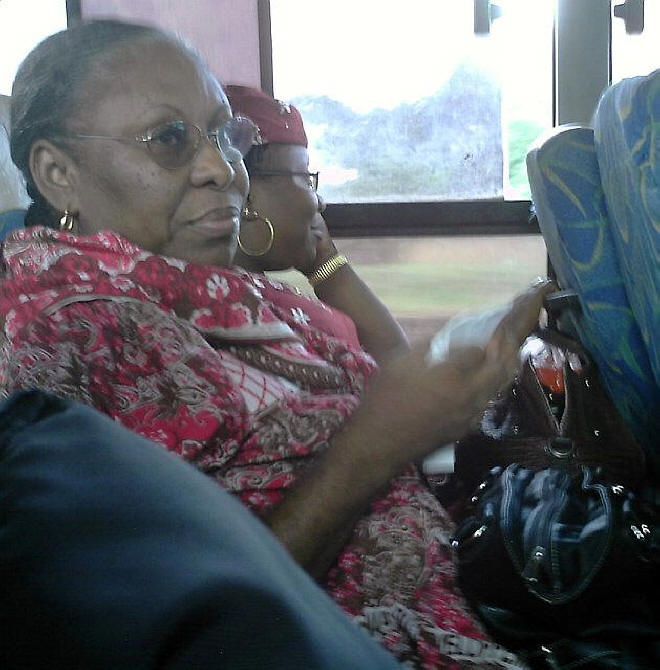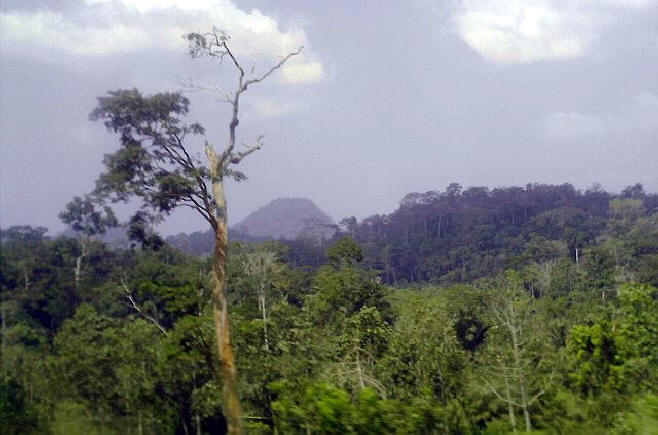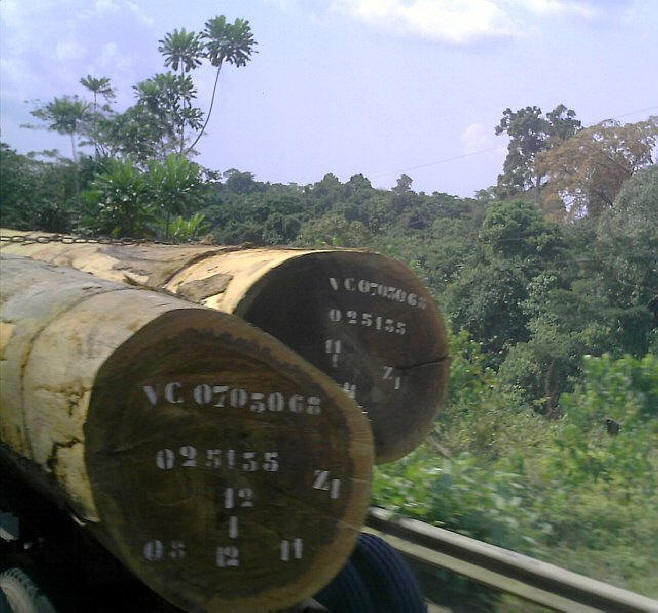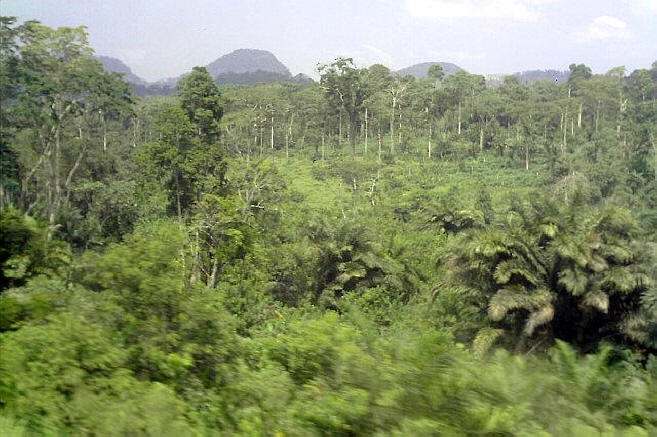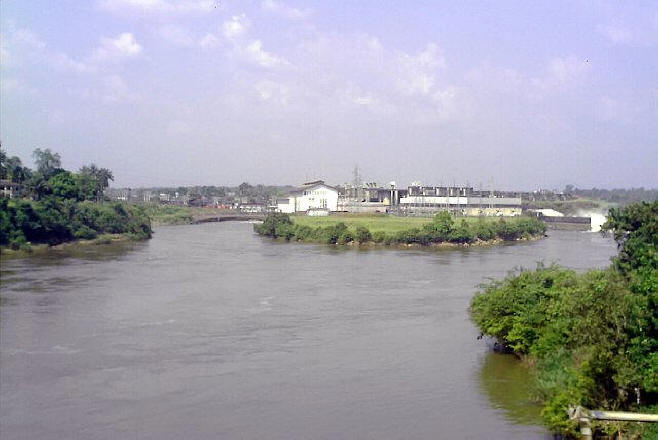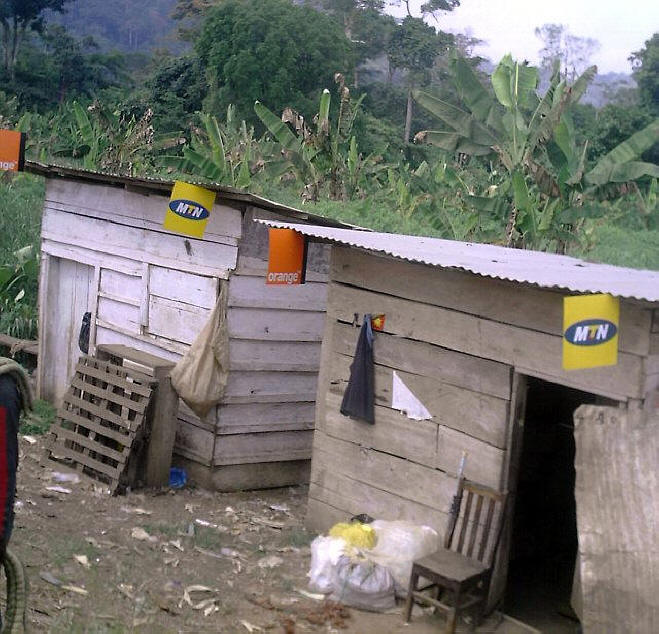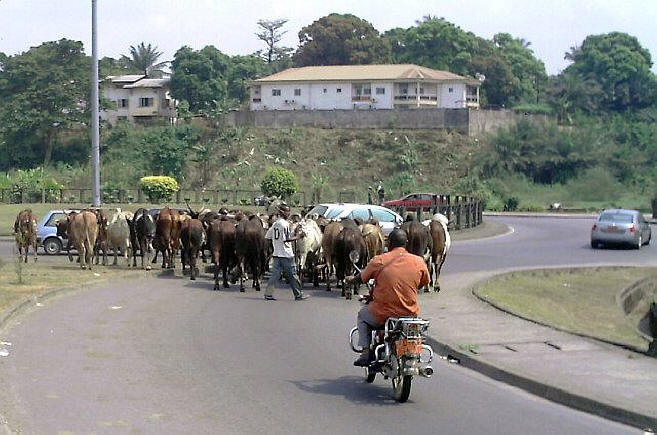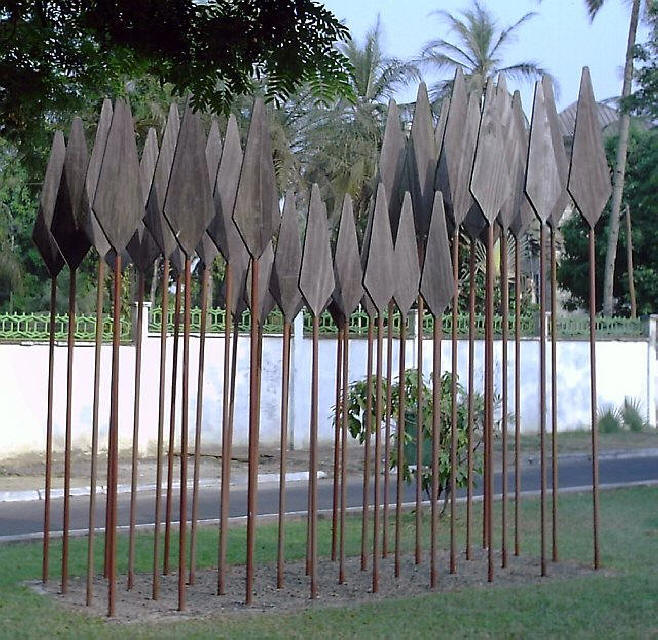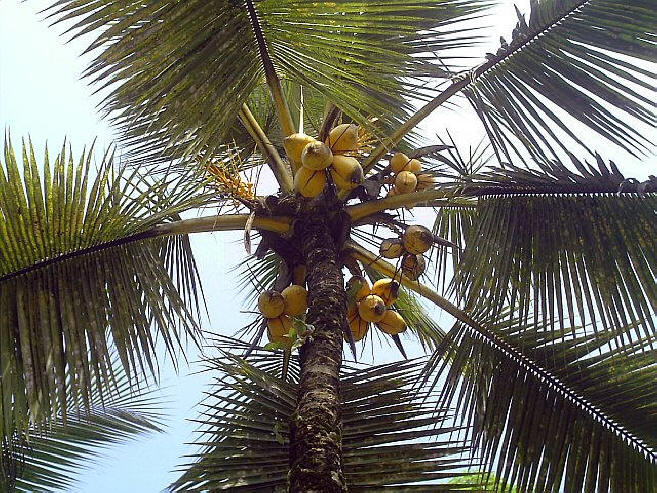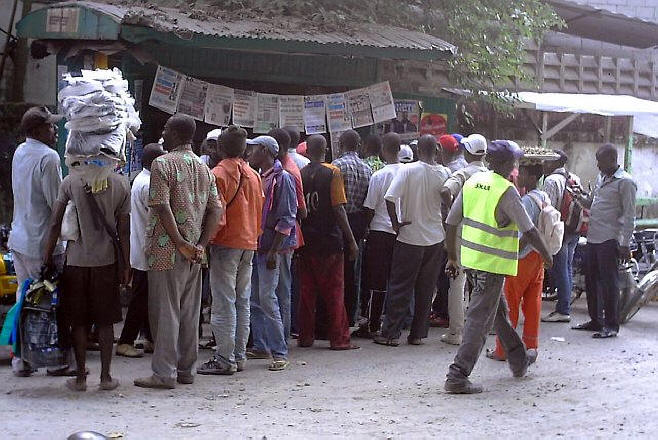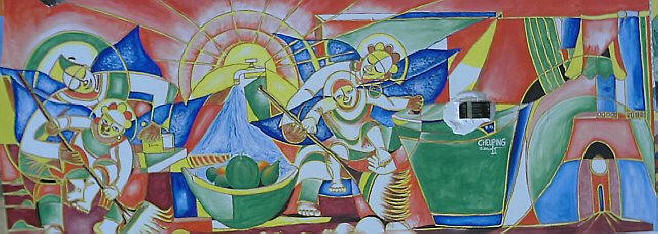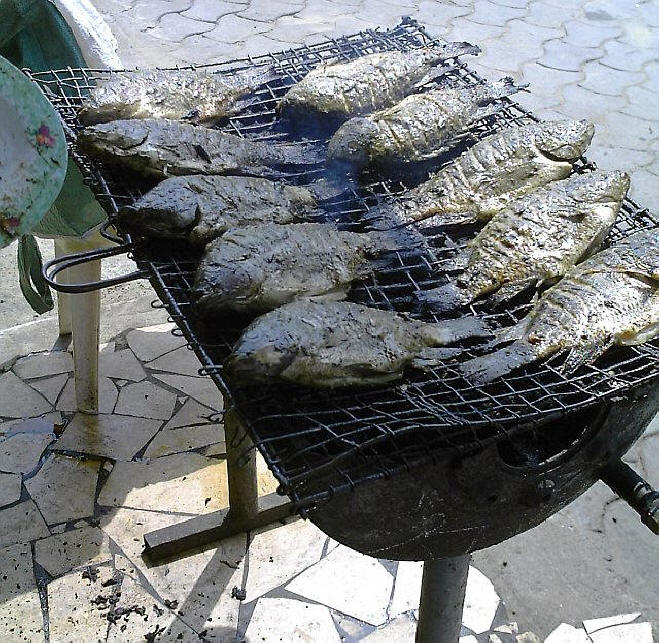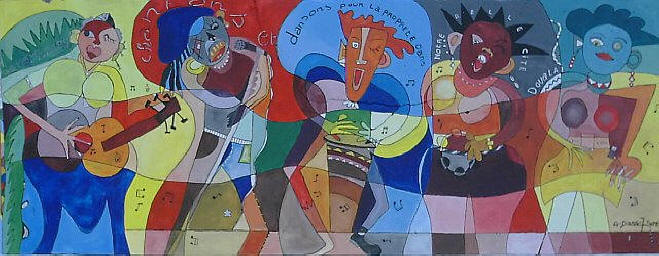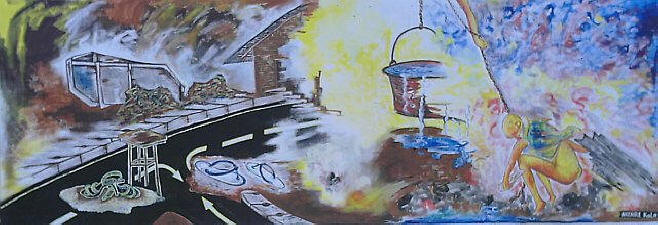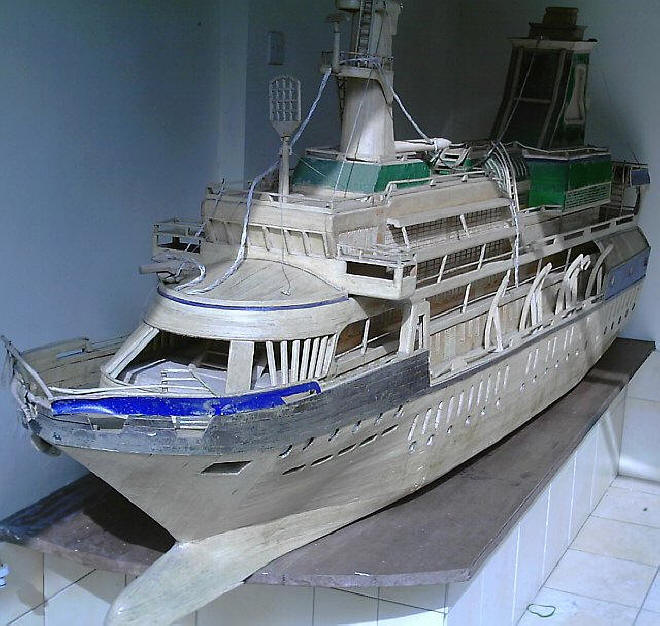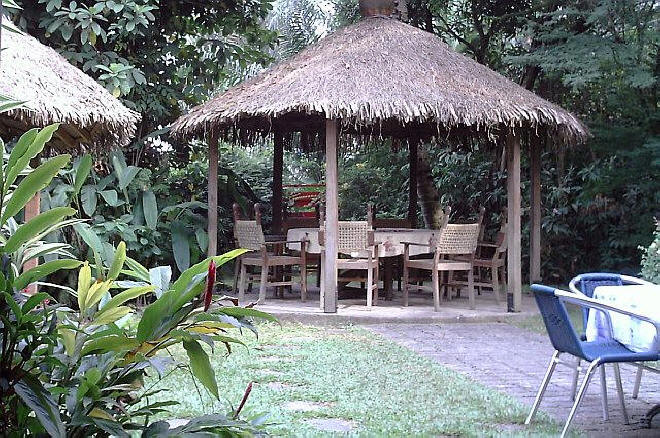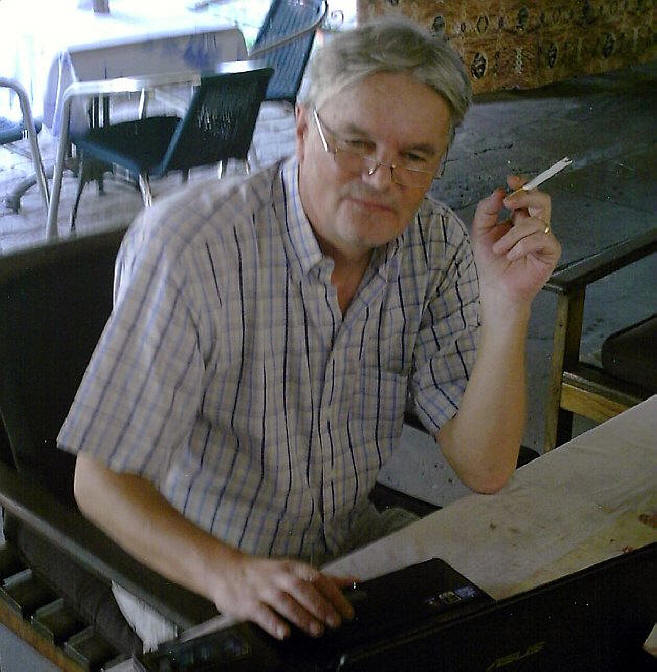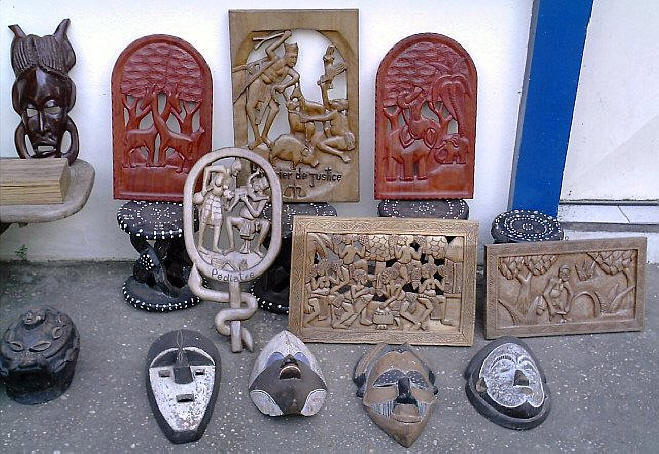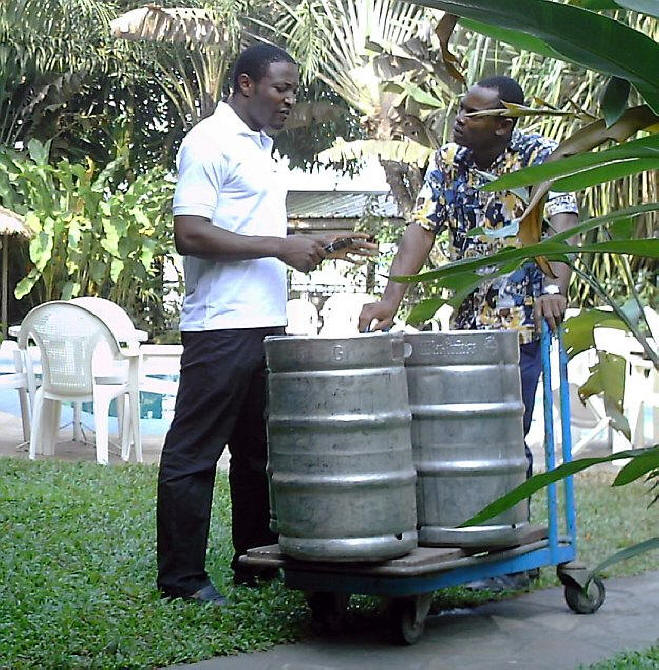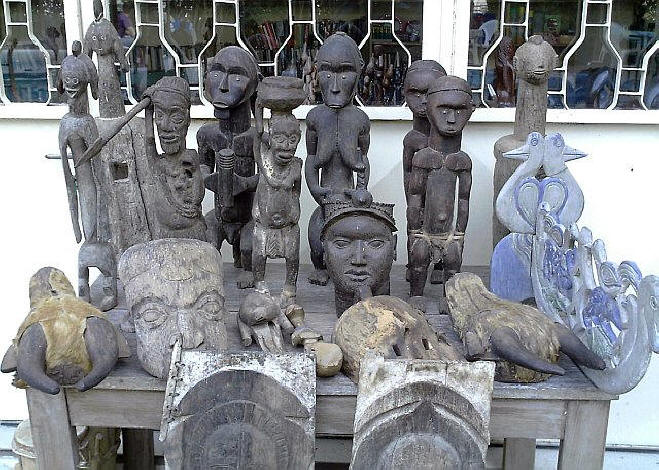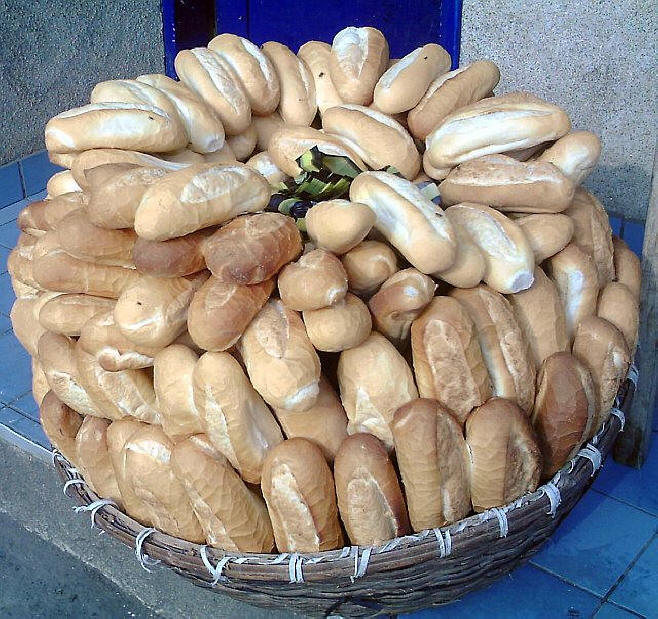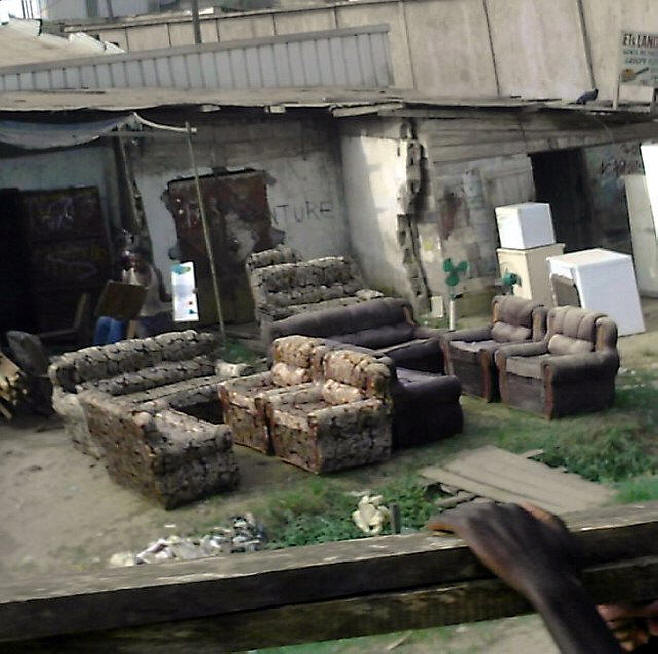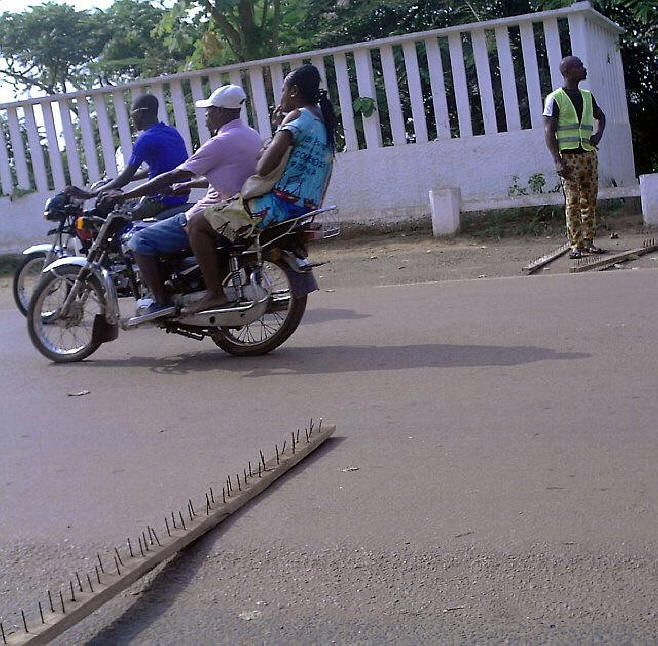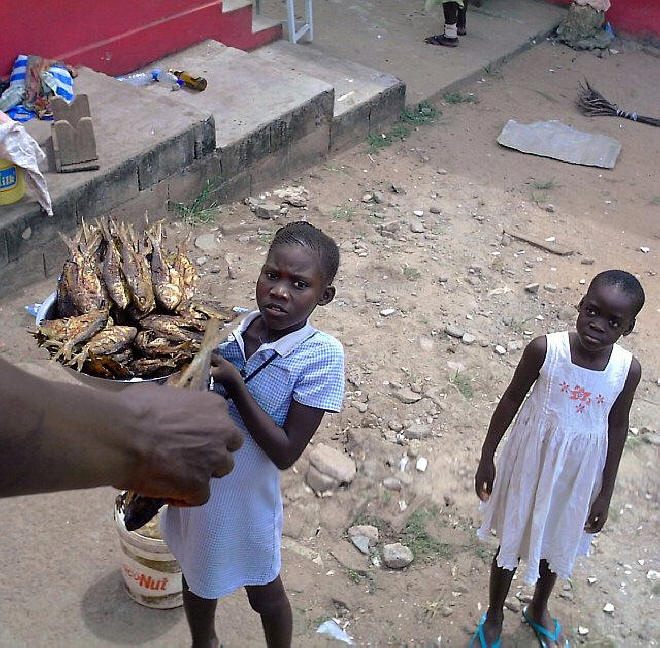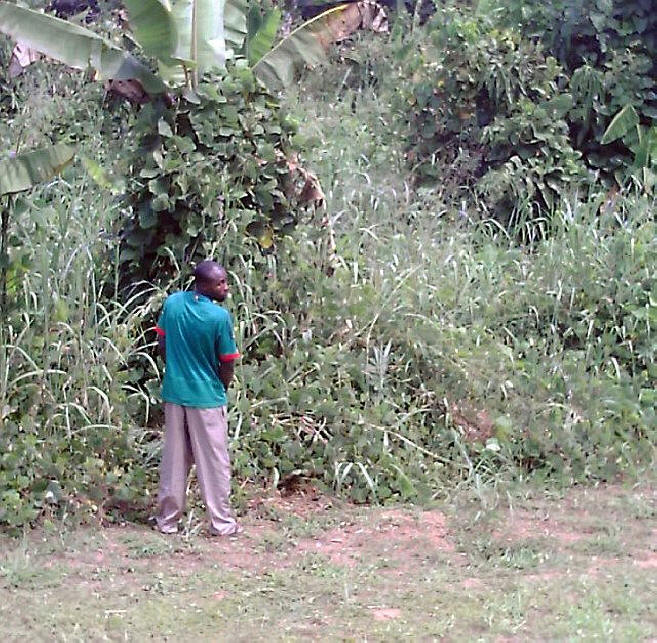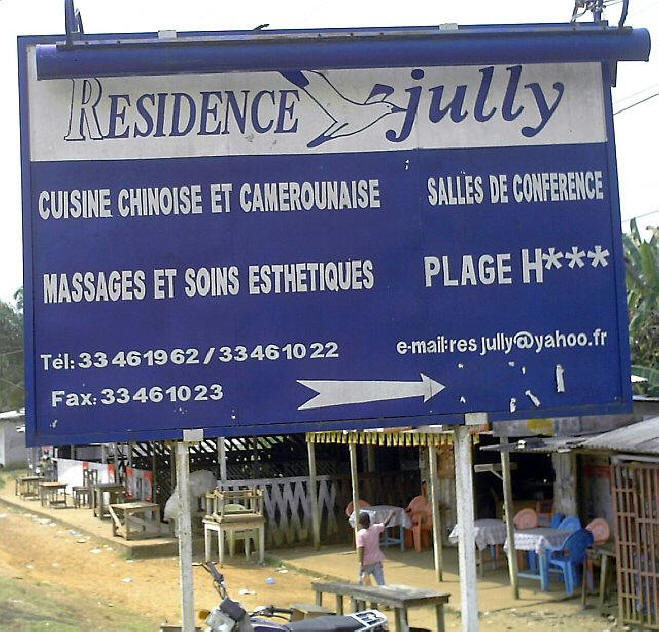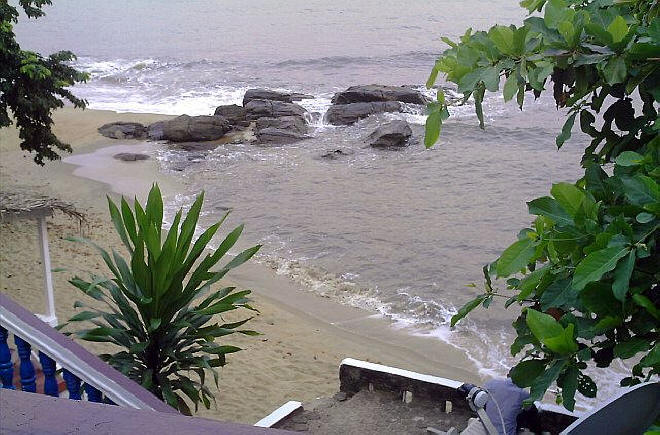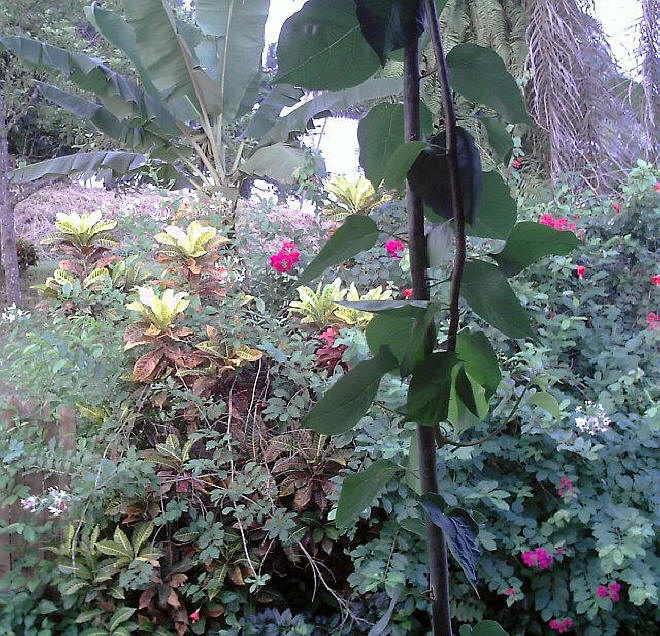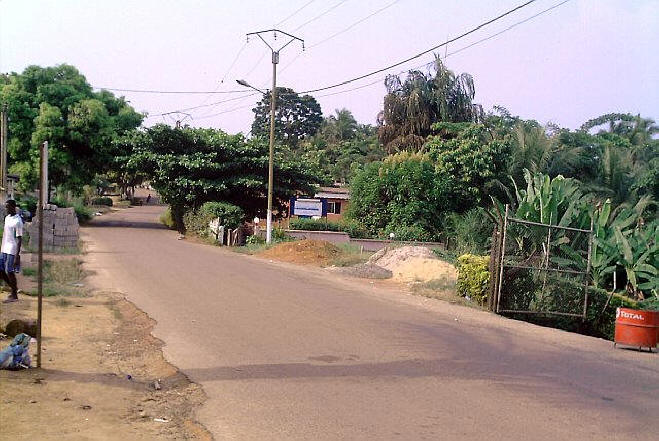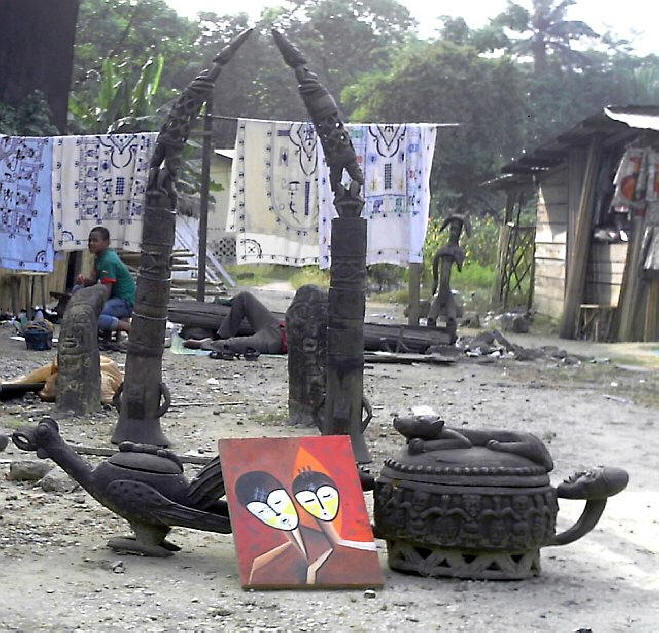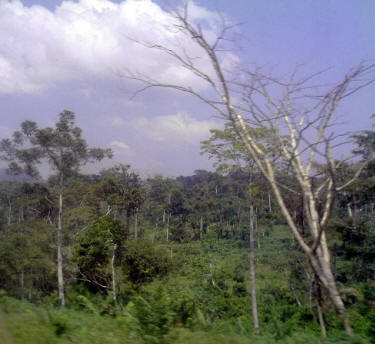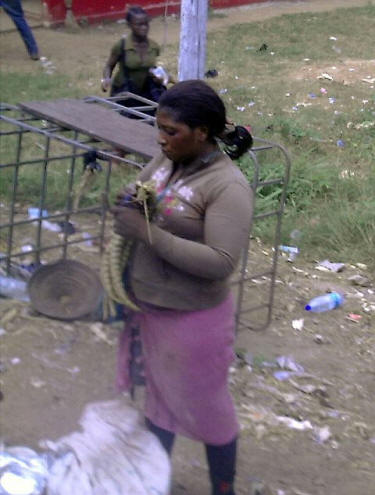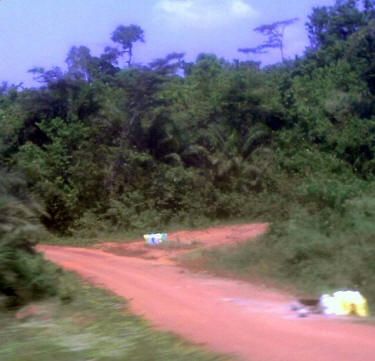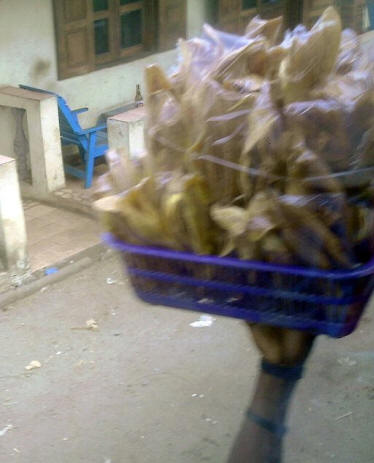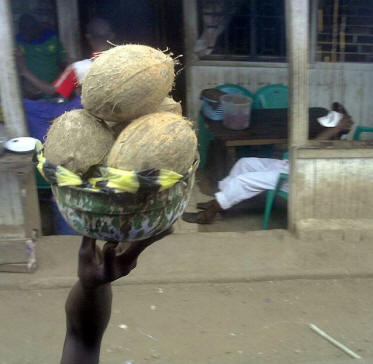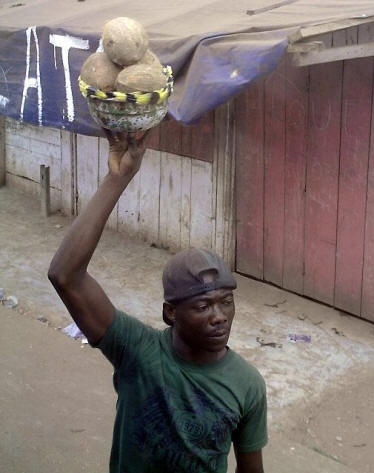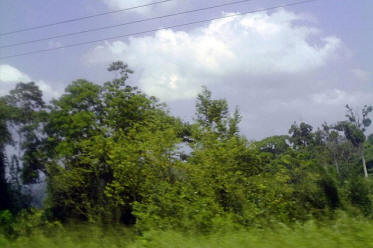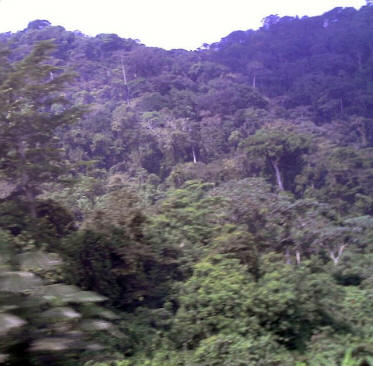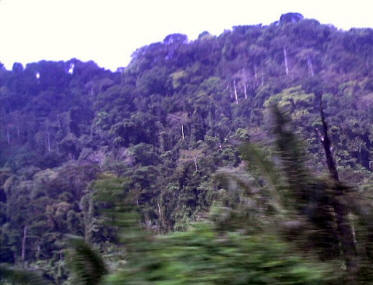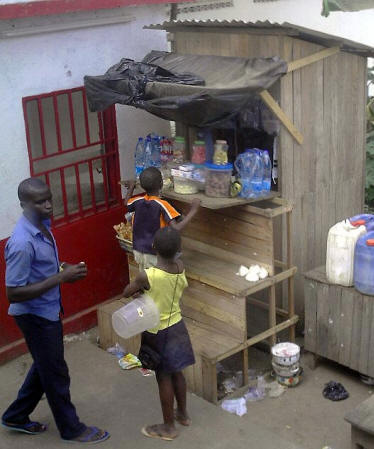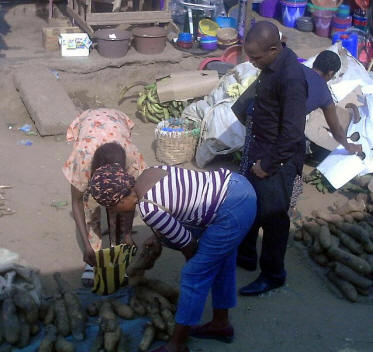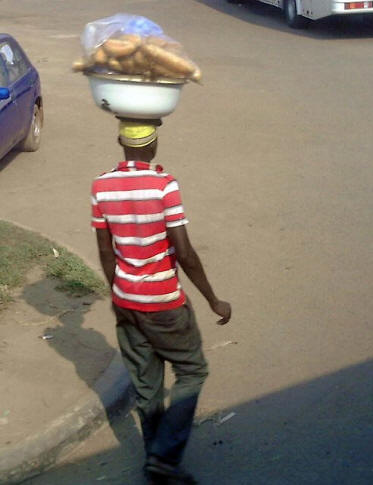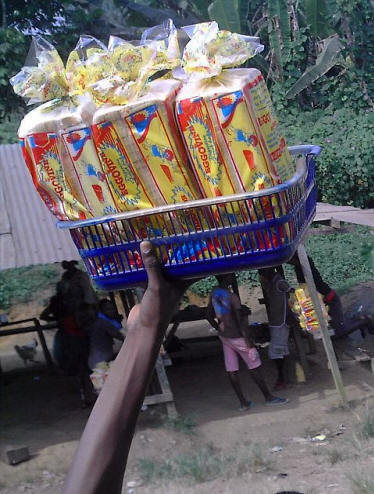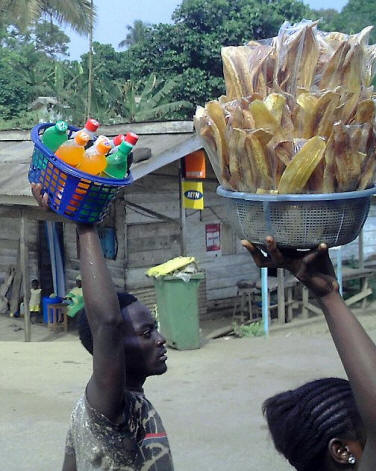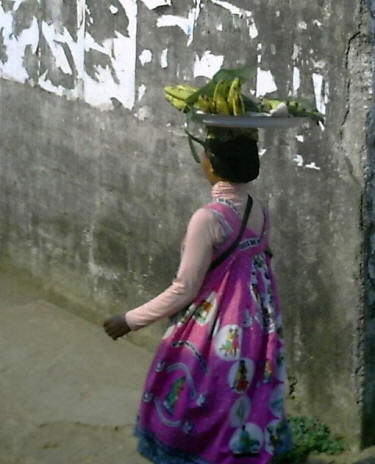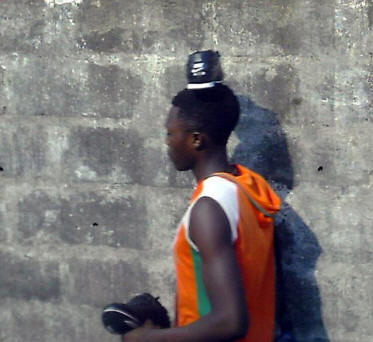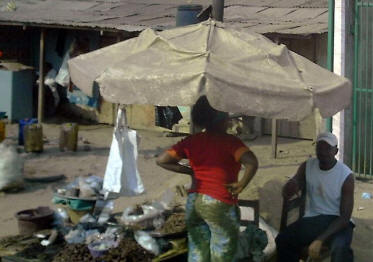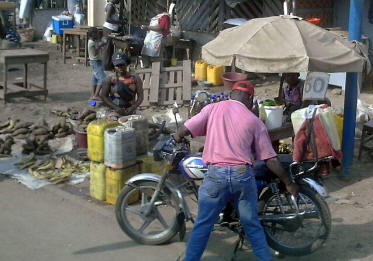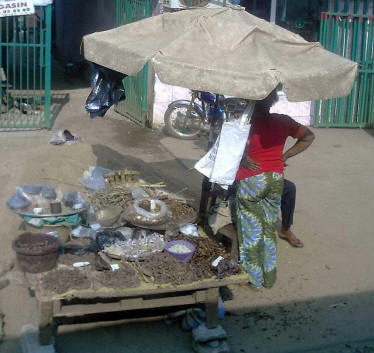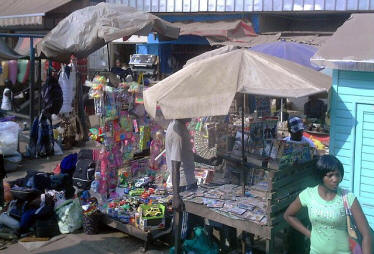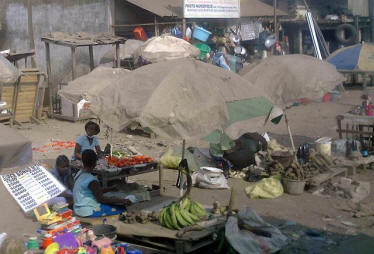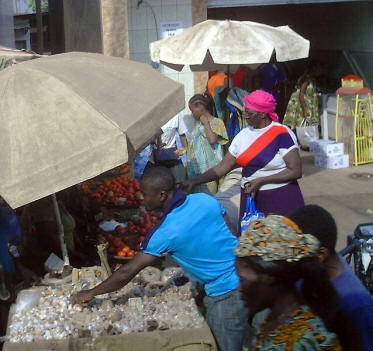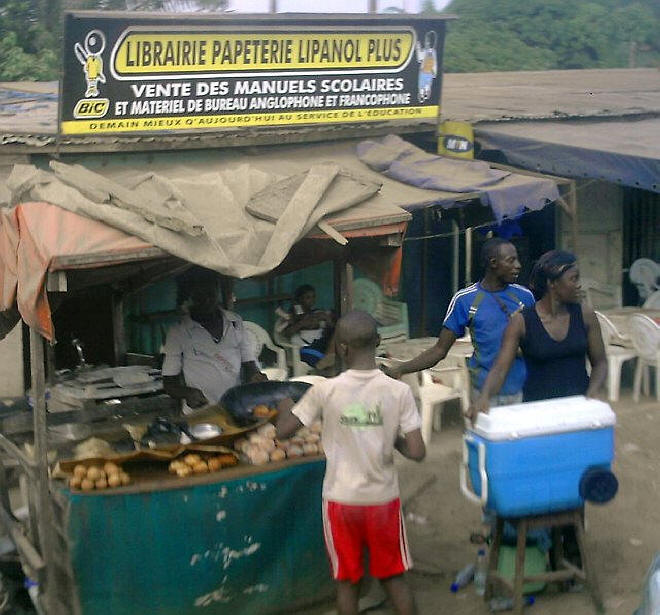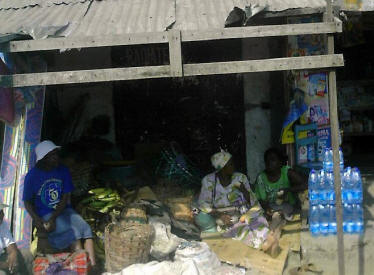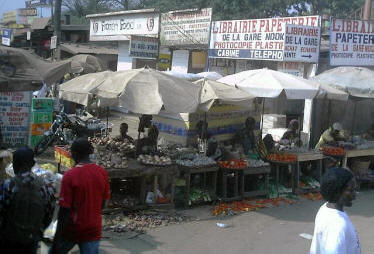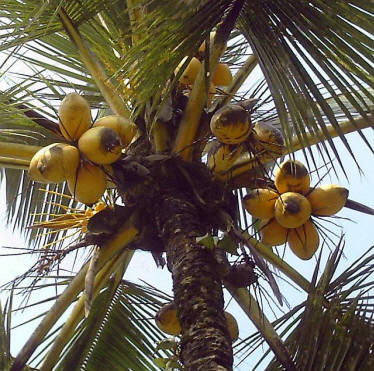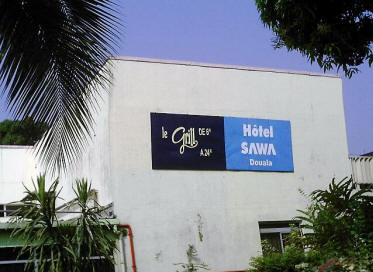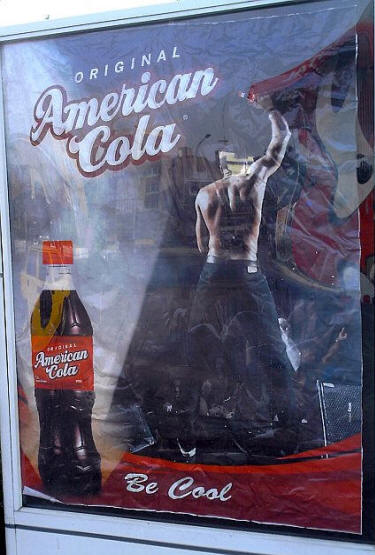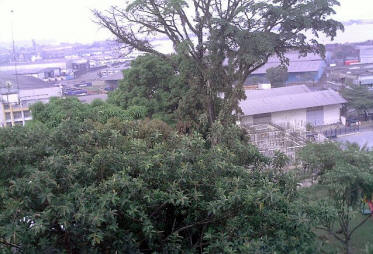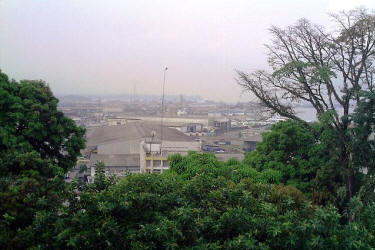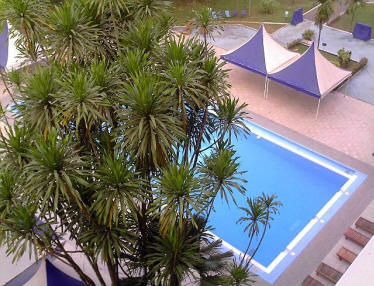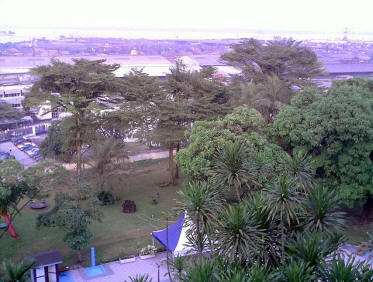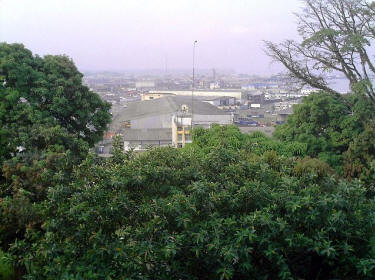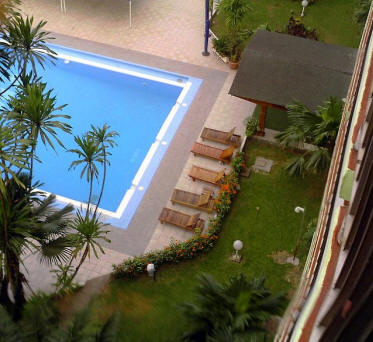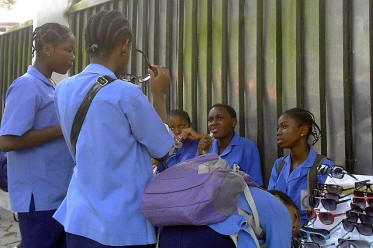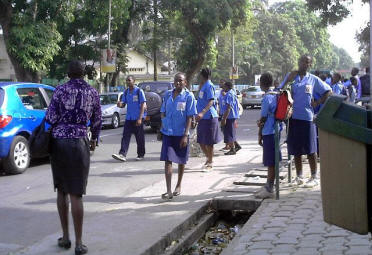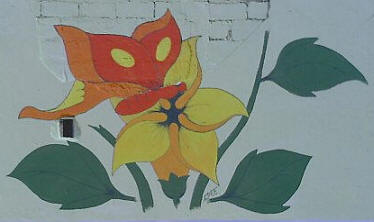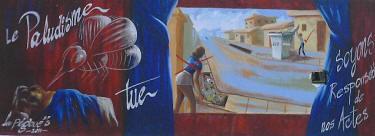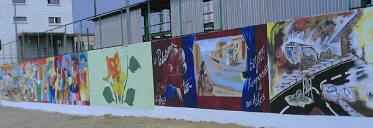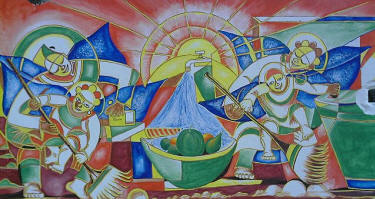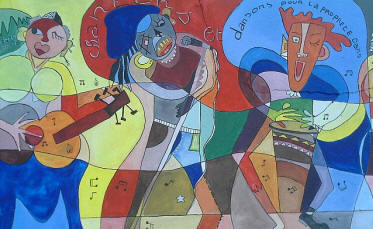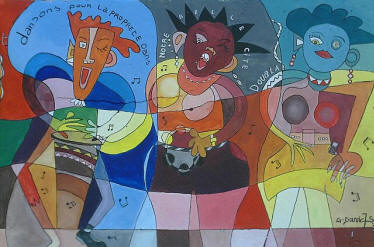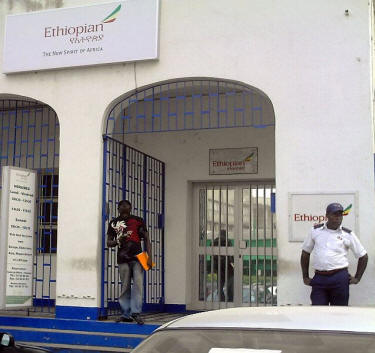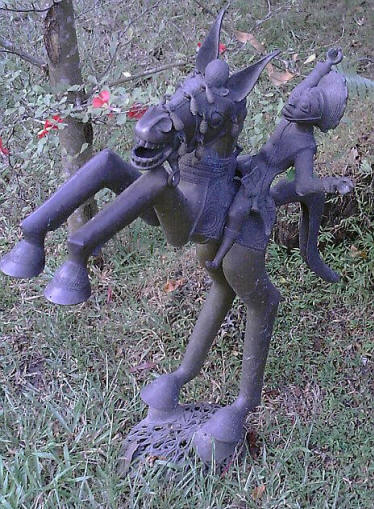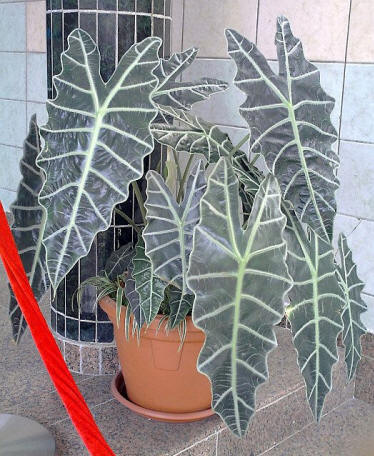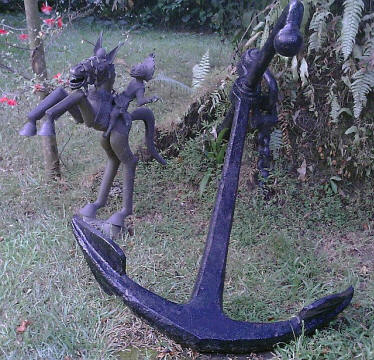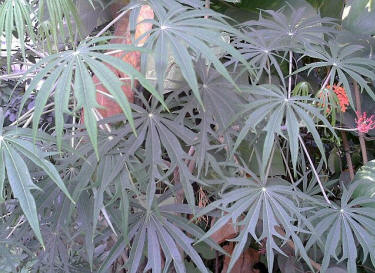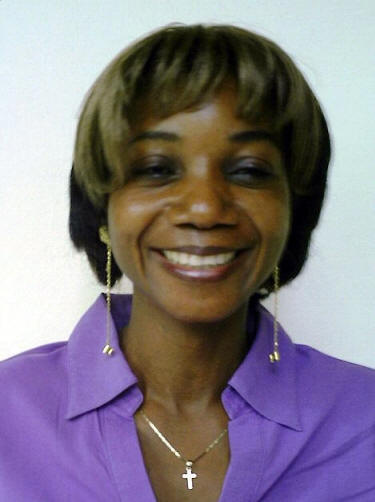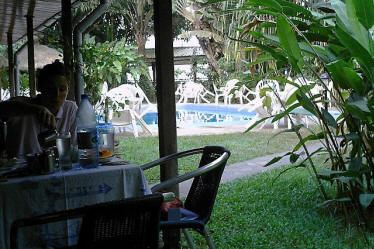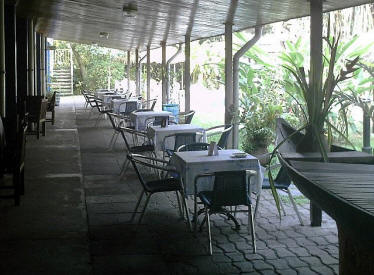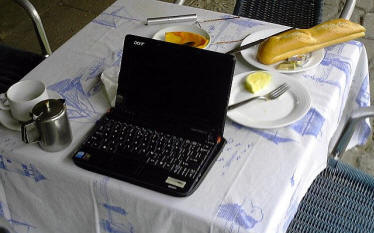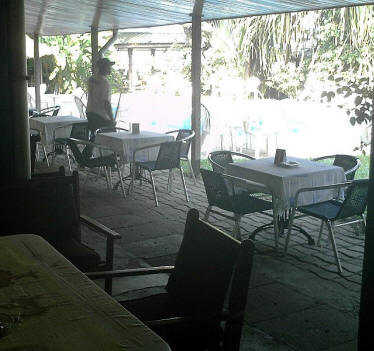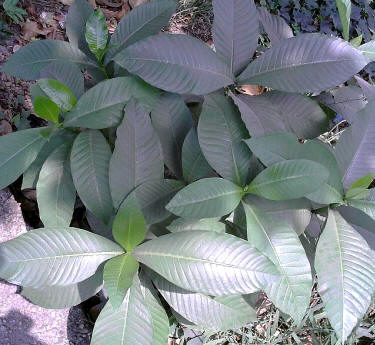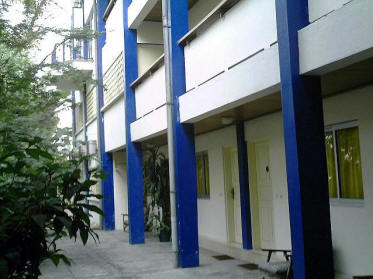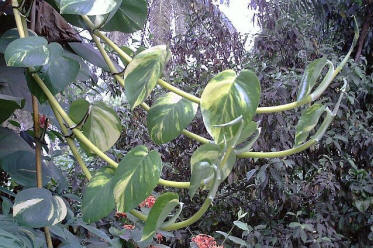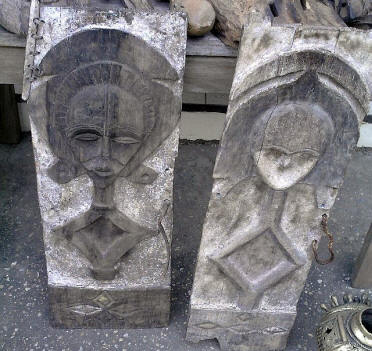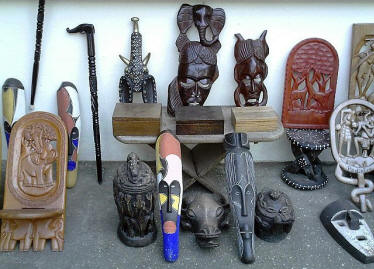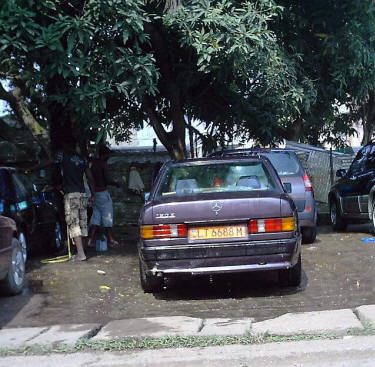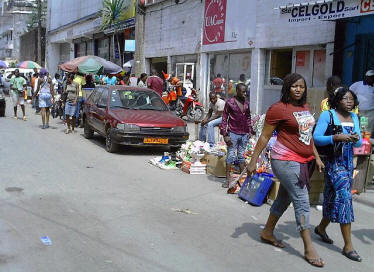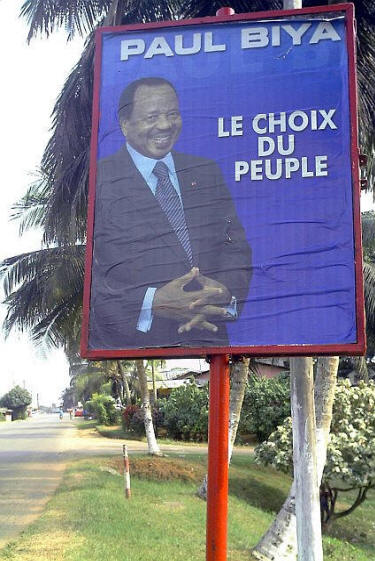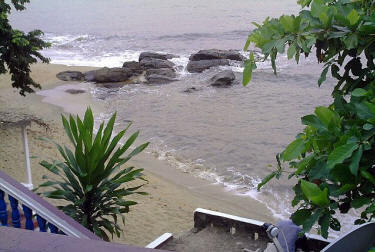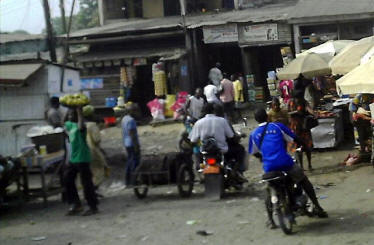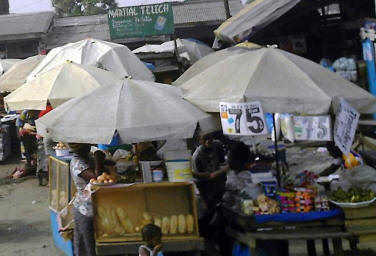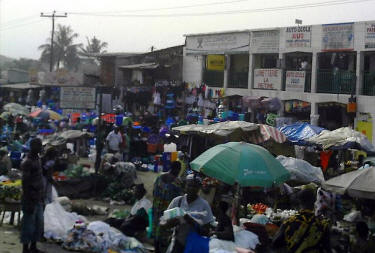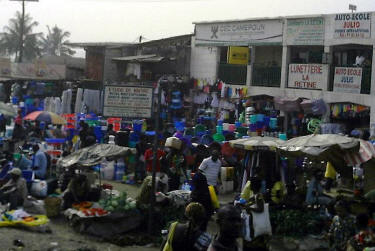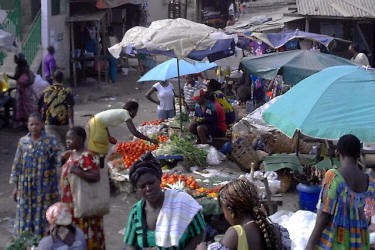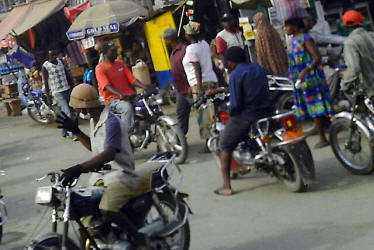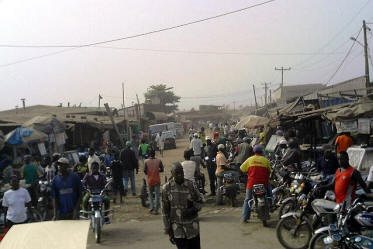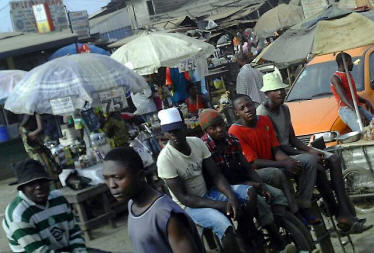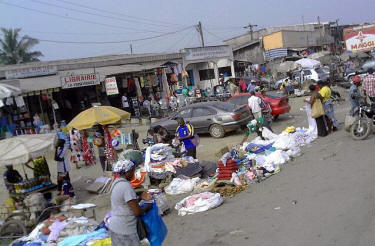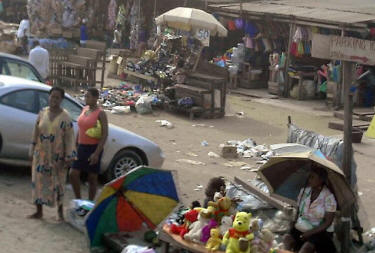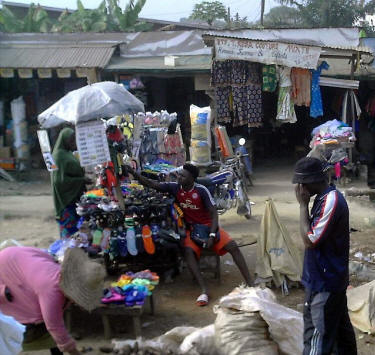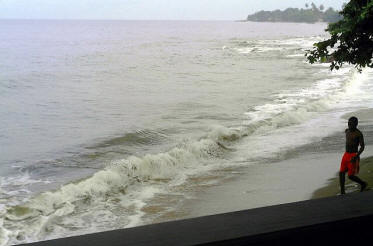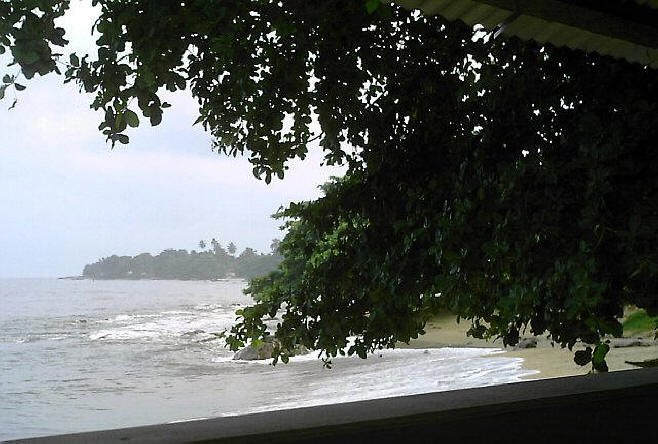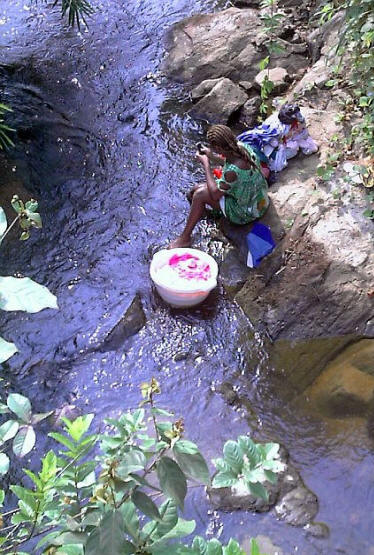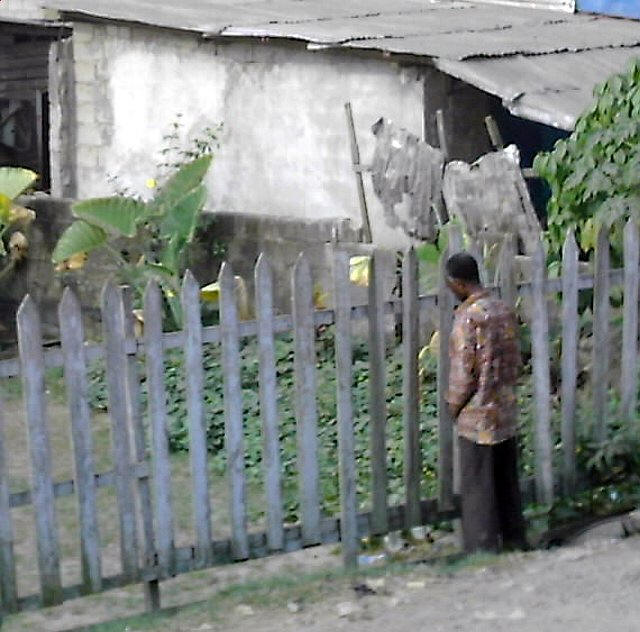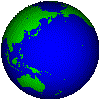


|
Postcards
from:
Las Vegas Nevada Algeciras Spain Rabat Morocco Madrid Spain Yaounde Cameroon Douala Cameroon Addis Ababa Ethiopia Lalibela Ethiopia Axum Ethiopia Gondar Ethiopia Bangkok Thailand Las Vegas Nevada
|
Hello from Douala Cameroon, Coming to Cameroon turned out to be a fortunate accident in terms of my interest in traditional healers as the subject has been getting an increasing amount of high level attention and government support. Take a look at this informative publication: INTRODUCTION: TRADITIONAL MEDICINE IN THE AGE OF MODERN MEDICINE. Distinguished from charlatans who peddle fake medicines, traditional healers combine modern knowledge of medical science with ancient social insights reflecting practical cultural imperatives to create a uniquely effective health maintenance regimen... and they offer their services at fees the poorest Cameroonians can afford. One traditional healer interviewed by an academic research team noted: “If you’re in traditional medicine for the money, you’d better become a bandit.” Manfred stood chatting with the slightly rotund “black robe” as I gingerly approached the pair with a tentative greeting in German, French and finally English. Father Antoine smiled and returned my greeting in prefect, if highly accented English. Manfred, for his part ran fingers through his unruly short grey hair and grinned showing nicotine stained teeth surrounded by a several days growth of salt-and-pepper beard. Manfred is an ordained evangelical minister and director of the Foyer du Marin Mission which is better known among backpackers as the Hotel Foyer du Marin, an excellent German run low-cost hostel in Douala Cameroon. Antoine is a native born Cameroonian trained and ordained by the local diocese into the Roman Catholic priesthood. Both men are far more earthy than saintly and seem to immensely enjoy each others irascible banter. “This is Fred, a guest,” nodding in my direction as a way of introducing me to Father Antoine. “He was asking about witch doctors; I should let you tell him about that.” he said to the priest, twisting his expression into a difficult to interpret grimace. Manfred manages the spiritual life of a mission created to cater to the needs of German seamen and their whores and their beer drinking and their chain smoking and he appears to fit into the convoluted groove perfectly. “Ah, if you want to know about traditional healers, you should go to Yaounde and talk to Dr. Daniel Lantum at the University of Yaounde. He has been studying the ancient practices for many years and is a world expert on the subject.” the priest responded with great seriousness. “Darned. I just spent an entire week in Yaounde totally unaware of that interesting tid-bit. As it happens, I’ll be leaving Cameroon in a few days, so there is no chance to backtrack. However, I’d be grateful for anything you might be able to share with me on the subject of witch doctors.” Father Antoine became agitated and spit out his response with body language that shouted disgust: “Witch doctors do the work of the Devil! They are evil and of no benefit to anyone. All they do is hurt people!” His response reminded me of an experience I had on a train through Mali back in 2001 when the father of a small child, terrified by my appearance was counseled by his father to put a "hex" on the white evil one for protection. After making an odd hand gesture in my direction, the transformation in the child's demeanor was dramatic: from debilitating terror to over powering self confident arrogance; totally unexpected in such a young child. “What do you mean: 'work of the devil?'” Slightly chagrined I encouraged the priest to continue. “People go to witch doctors only when they want to injure someone and the methods they use are not scientific like those employed by legitimate traditional healers. For example, they might require a preparation that includes the genitals of a child to make their evil magic work! Clearly, they are doing the work of the Devil… what else could it be?” He paused and hung his head, slowly shaking it side to side and then continued: “The Church strongly condemns the practice of witchcraft and teaches only God can promote health.” As Father Antoine again became silent I ventured an observation: “You distinguished traditional healers from witch doctors, but aren’t they just different kinds of the same thing?” “Oh, not at all. Traditional healers use scientific methods clearly demonstrated to have beneficial results. They take advantage of the known therapeutic effects of many plants and herbs, or body manipulations that restore normal functioning… and they incorporate psychological techniques that involve the patient's mind…" pausing and lowering his voice he continued: "... and to provide an excuse when their prescribed remedies don’t work,” he grinned. “For example: they might tell the sick person to first stand, spin around clockwise three times while breathing deeply, then raise one hand up while touching the ground with the other at the same time grunting and then to drink a brew made from an herb known to have medicinal properties. If the herbal remedy doesn’t work, the patient is encouraged to attribute the failure to incorrectly performing the prescribed movement rituals rather than the ineffectiveness of the herbal prescription, thus preserving the healer’s integrity.” "An individual healer’s knowledge of plants and procedures often are closely guarded secrets. Outside researchers are rarely given access to these secrets so objective assessment of the methods is difficult. Anecdotal reports of success abound however, reinforcing a healer’s reputation and popularity. Charlatans also thrive and form a major challenge to the legitimacy of established practitioners." “How do the healers learn their craft,” I asked, “do they go to some sort of medical school?” “Well, strange you should ask. Many these days do just that as there is an increasing government concern over the fact most poor Cameroonians receive whatever medical care they get only from the traditional healers. One WHO study put the numbers at eighty percent! Traditionally though, healers learn the art from their fathers and pass it on to their sons. But, there are now many schools to teach the practical aspects of hygiene, elementary pharmacology, basic physiology and basic anatomy to the traditional practitioners… and yes, the psychological aspects, too. We know about the placebo effect and I’m certain the traditional healers make effective use of this knowledge.” Shifting his intense gaze between Manfred and me he continued: “If you want some immediate information, check out Dan Lantum's publications on the Internet. He is a recognized leader in the study of traditional African healing practices and has excellent academic credentials. He got his modern medical training at the University of Liverpool and Tulane University.” (Prof. Lantum is the regional coordinator for Africa for the International Council for Control of Iodine Deficiency Disorders. He is also the former head of the Department of Public Health, faculty of Medicine and Biomedical Sciences at the University of Yaounde, Cameroon.) Manfred all this time remained quiet watching with obvious fascination our exchanges. Finally he interrupted: “You don’t want to take everything this bloody Catholic says too seriously. He has been known to exaggerate in his effort to win souls for his church,” shifting his attention to Father Antoine while smirking like the canary stuffed cat. “And this bloody protestant has been known to ply his victims with strong drink to win an argument.” the priest added with a wink. With that we all chuckled and Manfred noted how much he would enjoy it if we both could join him for a beer in his bar. Father Antoine immediately agreed and I begged off citing a low alcohol tolerance and left the happy comrades in spiritual arms. Despite a great deal of firsthand knowledge and considerable study, I’m afraid I still harbor a good many old stereotypes about religious missionaries in Africa. This encounter with these two friendly foes has provided new insights into the realities. After learning one of the office staff at the hotel had been treated by a traditional healer I managed to have a conversation with thirty-five year old Raymond (with the French translation help of Sophia, the hotel’s receptionist) who told me how “modern medicine” had failed to provide a cure for persistent pains in his left arm and neck. The “modern” doctors diagnosed his problems as rheumatism and prescribed a conventional treatment plan. After six months of ineffective efforts with no relief he looked elsewhere for help. The traditional healer he engaged made a poultice from a ground seed powder and then “vaccinated” a wide area of his entire body with light scratches to which he applied the concoction. Each scratched spot stung “a little” with the application of the slurry, but “only for a moment.” (Counter Irritation has been a known treatment modality historically for a long time and Raymond's procedure sounds like it probably takes advantage of the phenomenon. It is interesting we hear so little of the technique in connection with "modern" medicine today.) With the pain relief phase of the treatment finished the healer prescribed a walking exercise to counter his lethargy. Now months later Raymond says he is completely cured. Traditional medicine is alive and flourishing in Cameroon and practitioners have much in common with the alternative health care professionals we call Naturopaths in the West. A particularly good examination of Cameroonian traditional medicine is presented in this long article: Improving Traditional-Conventional Medicine Collaboration: Perspectives from Cameroonian Traditional Practitioners. Revisiting this subject today reminds me of a study I did many decades ago for a chiropractor friend of mine preparing for a debate with several other medical professionals. Shocked, the literature study I completed for the friend clearly established that the fundamental theory upon which the practice of chiropractic is based is not supported by the evidence! Even more shocking though, the "cure" rate of chiropractors was higher than that of orthopedists when treating lower back pain! Analysts attributed the discrepancy to the fact that chiropractors spend more time touching their patients than do the allopathic doctors. I have never forgotten that lesson and it has sustained my interest in "natural healing" processes over the years. Interestingly, the World Health Organization has taken the lead in assessing the efficacy of regional traditional medicine throughout the world and has published a detailed monograph of its findings: Legal Status of Traditional Medicine and Complementary/Alternative Medicine: A Worldwide Review. The Terminology section provides a good overview of contemporary healing philosophies/practices throughout the world. During my present research I came across an informative article entitled: Healing in the African Diaspora Communities of Boston. I consider it interesting because it reports contemporary findings among a black population in an American city which corroborates what Marcel told me in Yaounde about how his personal approach to health problems incorporates supernatural magic, religious practices, traditional herbal remedies as well as modern medical treatment elements. But, I again get ahead of myself in the story telling. In the last postcard I did not yet have the Gabon visa and still puzzled over options for further exploration of central West Africa. The Gabon visa arrived as promised on Friday after the three day processing delay. I got to the embassy at 15:00 and waited around in the hot sun with a couple dozen other applicants. Finally, at 16:20 two embassy employees appeared with a box full of passports and started calling out names associated with the passport being displayed. My fat little blue book stands out from the more normal thin booklets most people carry so I spotted it toward the bottom of the pile and patiently waited. Passport in hand and now qualified for travel through Gabon for a month I headed back to the hotel to make onward travel plans. My still fluid thinking included wandering around the southwestern part of Cameroon while heading in the general direction of Gabon to the south. I'd looked at flights into the country, but decided $300 a bit outrageous for such a short flight. Besides, bus trips usually are more interesting anyway. Eventually I decided to head west to the largest city in Cameroon, Douala near the coast and bought two seats as is my practice for long bus rides. The deluxe, air conditioned Garantie Express bus left Yaounde a half hour after its advertised departure time of 11:00. The surfaced road between Yaounde and Douala is quite good; no pot holes and usually wide enough for two way bus and truck traffic. Our driver drove fast when traffic permitted, but also used good judgment when it came to passing slow trucks. There were many of them on the road: bulging with cargo or logging trucks overloaded with huge tree segments heading for mills. The green, green rain forest along the road reminded me of Washington State. We drove through only a few towns and all seemed to be in the midst of a shopping frenzy. The sellers obviously prefer spots just off the highway pavement, so every form of commerce became clearly visible from my bus window: shiny cooking pots, fresh produce of all kinds, piles of Cassava sticks ready for cooking, locally manufactured overstuffed furniture and just about every other product one might need. Each time the bus slowed for traffic impediments hawkers would crowd around the open front door of the air conditioned bus to offer their refreshments and snacks. The driver would cooperate with the passenger-seller transactions, delaying the resumption of the trip just long enough for everything to get completed. As the bus passed through some villages speed bumps (called water buffalo humps) became so frequent all traffic slowed to a crawl, including the bus. There are few speed signs; not needed as the speed bumps do the job. The buses have passenger seat belts and at least one foreign tourist made use of them most of the time, though I never saw one used by a Cameroonian. The trip took over four hours instead of the advertised three arriving about 16:00 and leaving less than three hours to find a hotel before dark. The Douala bus terminal is in a dramatically dilapidated part of town, about two kilometers from one of the several city centers. This is the most modern city in Cameroon and there are several First World hotel chains here with rates starting at 68000 CFA (about $136) per night. That is the rate quoted by the IBIS Hotel I checked: prior experience suggesting I’d find good quality and lower than market room rates at any Ibis hotel. None of the other places I’d checked came close to being acceptable quality and value. As dusk descended I realized I’d have to compromise and stopped in at the three star Hotel Sawa next door to the sticker shock Le Meridien. The Sawa had rack rates of 68000 CFA and I started my most pathetic pleading for alternatives. The desk clerk asked if I needed a sea view room and with this opening noted the view would not be an issue if the rate could be lower. Checking his availability records he said he could give me a room for 55,000CFA (about $110) and I pounced on the offer… “at least for one night,” I added. When I reached room 744 I discovered he had put me in a sea view room anyway, though the obscured view of distant water through the cargo docks and cranes is far from fabulous. There is no usable WiFi in the room, but is O.K. down in the lobby and dining room. KRIBI December 14: After a week in Douala I decided to head south toward Gabon and took a Central Voyages bus down to Kribi, the premier seaside holiday city in Cameroon. When the bus arrived in the outskirts of the city, the Residence Jully hotel I’d checked on the previous day now had no rooms and the deluxe, newer La Maree Hotel with 40K ($80) rates across the road also had no rooms. So, off I walked and kept walking for three hours checking most hotels along the way until finally settling on a barely adequate room in the Hotel Bodomier for 25,000 CFA (about $50). The one bright spot here turned out to be the evening chat on the sea view patio with a couple construction workers from the Netherlands. They are part of a team helping to build a new Chinese funded gas fired power station a few kilometers north of Kribi. The project will take advantage of a large reserve of natural gas recently discovered in this part of Cameroon. The next morning I briefly renewed efforts to find better housing, but no luck. The skimpy $8 “breakfast” on the patio at the Hotel Bodomier with the gentle sounds of the surf as background music would cost half that anywhere else in the world, but the setting made up for what the food lacked in quantity and quality. After breakfast I checked out transportation options eastward and it became clear I had arrived in the real Third World Africa again. The overcrowded minibuses offered for transport toward Ebolowa and Bitam just over the border in Gabon looked decidedly uninviting for a three to five hour trip over mostly bumpy, dusty dirt roads. So, I decided to return back up to Douala to investigate less discouraging alternatives. The Central Voyages bus station in Kribi looks like a neighborhood auto repair garage; old and greasy. The waiting room benches assume no more than six people will wait for a bus. As departure times approach the bus pulls up next to the open “garage” and people line up to board the bus. I had bought two tickets and been assured by the ticket seller of two adjacent seats by a nod to my moving two fingers together gesture that always is understood in any language. Hovering around the entrance to the bus the crowd backed off as the conductor announced the bus would load in the order we had purchased our tickets. No problem I thought and waited for number 26 to be called for a bus that holds more than 50 passengers. As I scrambled aboard for a couple adjacent seats on the rapidly filling bus I discovered all the window seats occupied with determined passengers jealous of their coveted location and no pair of adjacent seats available. Efforts to procure the assistance of the conductor proved futile. Finally, I grabbed two adjacent isle seats and grumbled loudly about my displeasure while trying to convince people in window seats to move to an isle seat so I could put my bag in an adjacent seat for the trip. No one moved and several made sounds that demonstrated their determination to hang on to their precious window locations. All of this happened without any understandable language exchanges, just tone of voice, body language and gestures. My seat mate made it clear she adamantly wanted her window position, despite my loud protestations. So, I shut up and sullenly sunk into my cramped seat snuggling close to my seat companion. People around us were chattering about my predicament and about five minutes into the ride my seatmate announced she would shift over across the isle to where my bag had been stored and allow me to bring it next to me. I had just about decided everyone in Cameroon was an inconsiderate oaf and her gesture dramatically turned that opinion around with smiles exchanged all around. The remainder of the trip proceeded without incident. Back in Douala I returned to the Hotel Sawa for two more nights. In the absence of anyplace to get meals I consider safe and reasonably priced I have been eating a lot of dry biscuits, bananas, processed cheese wedges and bottled water or Coca-Cola. It is amazing how little it takes to keep the human organism functioning. I suspect this diet may be helping me shed some excess pounds. Hotel breakfasts in this predominantly French part of Africa consist mainly of rolls and croissants with some coffee and a glass of juice. The $15 buffet breakfast offered at the $110 Hotel Sawa in Douala broke the rules and had everything including a choice of two meats like sausages and fish. Fast food in this part of the world is a ripe banana from a wheelbarrow fruit seller one can find in nearly every block. During my entire stay in Cameroon I saw not a single BurgerKing or MacDonald's restaurant. My last night in the Hotel Sawa became a nightmare due to the highly amplified “noise” around the pool accompanying a gala celebration of some kind until 2:30 in the morning. During one of my walks I watched as a group of enterprising men cleaned and refilled used Tangui brand plastic mineral water bottles, even repackaging them in what looked like the original “shrink” wrap. Apparently, the caps are super glued to make them appear original and intact as I saw being done on my African trip ten years ago. On the day CNN was reporting that North Korea leader KimJong Ill had died, I moved over to the colorful and cheap 19,000CFA (about $38) Hotel Foyer du Marin or Seamen’s Mission for 5 nights while concocting onward travel plan alternatives. Reception is handled by a young woman with the most radiantly sincere smile I’ve seen in a long while. The hotel handles reservation records for 12 rooms and 4 studios with pencil notations in a large ledger spreadsheet just as inns have done in times past. The mission operates a shuttle bus morning and evening to the docks, but I have never seen anyone using the service. In fact, I don’t think I have seen a single sailor, German or otherwise here in this mission/hotel created for them. BTW, reviews of this hotel found on the Internet provide an excellent example of why I add “-tripadvisor” to all of my hotel searches on Google any more. Someone has decided to trash the reputation of this place. While some of the comments about beer drinking and prostitutes do reflect reality, most are gratuitously negative without factual support. The Internet has become too easy for commercial companies to manipulate. Rarely do I see useful hotel citations in the first few pages of a search because commercial promoters have stacked their propaganda with terms guaranteed to place them at the head of other results. “CHEAP” is a vastly overworked term… NEVER USE IT IN ANY TRAVEL RELATED SEARCH! Such searches invariably place results which are decidedly not cheap in positions near the top of the list. I’m sure favorable placement is a big revenue generator for Google. Pay more for your listing and get bumped to the head of the class. I cannot resist identifying the Hotel Foyer du Marin with the old classic film: The African Queen. The head guy here, Manfred is German and as cantankerous as the Humphrey Bogart character in the film. Hotel guests, half white, half black, some young, some old run the gamut from hippies to suited businessmen and every evening there is a steady stream of regulars who come in from the neighborhood to drink beer… and smoke cigarettes. Manfred is free and easy with his offers to join him for a drink; he is rarely seen drinking alone. (I should note the day before I left the guesthouse/mission Manfred cornered me slightly inebriated to lament being “sacked” by the bosses in Bremen Germany just four hours earlier! The confession confused me being delivered in highly accented slurred German-English and including phrases like “stupid Buddhists,” a possible reference to me as I am the only Buddhist around at the moment.) One morning at the hotel I met a PhD student from Holland working on tropical tree growth patterns for a professor studying global warming. His descriptions complete with core samples showing differences between tropical and other area tree ring appearances I found fascinating. Another evening I shared a dinner table with a journalist and his photographer doing freelance work for the Netherlands government on forest management. One could spend a lifetime in this interesting place and never hear the same story twice. For the past several nights a choral group has been practicing material for a Christmas show in the building adjoining my room. The unique syncopated African rhythms mixed with traditional Christmas carols have been intoxicating. This truly is an experience available nowhere else in the World: a true gift of serendipity. After such an evening serenade I awoke to strange bird calls a half hour before dawn and then to the cock’s crow an hour later; have to wonder how those birds managed to coordinate their performances. The WiFi is O.K. and I have been able to get a bit of work done during my five night stay, including processing a big backlog of photos which has been languishing in my camera. The main problem is this tiny keyboard. It works best when I am propped up in bed with the netbook perched on a pillow across my lap, but that is a position difficult to hold for extended periods of time. Almost every hotel I have used in Cameroon has had Chinese produced English language CCTV News, the same channel I relied on during my many trips through the People’s Republic of China. However, programming now looks a lot more like American produced TV. Even the sprinklings of human interest stories reflect American interests and preoccupations. Speaking of things Chinese, I have seen quite a few Chinese people, both tourists and business people in the places I’ve visited here in Cameroon. Also, the Chinese flag often flies along with the European Union and American flags over the entrances to upscale hotels advertising the nationalities of their current guests. The Chinese obviously have a big presence in this west Central African country. On several occasions I have seen groups of men clustered around news stands in heated discussion of the headlines on display, some shouting, some gesticulating wildly, arguments all. Cameroonians take their politics very seriously and I wonder why large billboards proclaiming the current president as the "man of the people" are seen all over the places I’ve visited in Cameroon. It is propaganda, for sure and makes one wonder what the truth might be. The current President, Paul Biya was re-elected Cameroon’s Head of State in the October 9, 2011 election amid numerous accusations of widespread fraud. Men pee wherever the urge occurs throughout the city, simply turning their backs to the rest of humanity and letting ‘er rip. I never see comparable behavior in any of the female population. Covers over the open sewers that line most streets are often missing, leaving gaps into the void. I can imagine stepping into one of the holes some dark night for a broken leg, but have never seen evidence of any such accident. Cars are another matter as they regularly park up on the sidewalks and need to drive over the sewer covers. Twice I have seen cars trapped when the driver misjudged the spacing and a wheel slipped into an open space. On one occasion, half dozen men immediately rushed to the rescue and physically lifted the fallen wheel up enough so the driver could force himself out of the trap. On a brief foray down to the Douala International Airport I got my first experience with widely rumored West African corruption. Though hardly the worst story I've heard, here is what happened in my case: Wanting to get inside the departure lounge to see someone at the Royal Air Maroc desk I discovered the entrance blocked by security guards who spoke no English and could not understand my attempts to explain in French. Soon, a lad in a bright yellow jumpsuit uniform approached from inside and inquired in English what I wanted. As I explained my information gathering mission he waved me through the entry and past the guards and then walked me over to the RAM desk. I quickly got the information I needed from the sleepy RAM agent and we left for the exit. As we moved away from the RAM office the “helper” chided me for failing to pay the RAM agent a fee or tip. I protested he did nothing special other than what he is paid to do and I felt no obligation to pay for that. Then the yellow jumpsuit demanded I should pay him for getting me past the guards and into the RAM office on a Saturday. Irritated by the extortion I hesitated and then realized he had performed a small extra service and a small tip would not be out of line. So, I reached into my pocket and pulled out all the change I had (about a dollar) and gave it to him. “This is small for me. You have dollars or Euros. That is what I need…” Now really irritated I told him the change was all I had and stormed on with the guy dogging my every step and haranguing me for more money. He followed me out to the edge of the entry drive all the while demanding more money. I kept walking, not looking back until a block away where the cabs sat waiting for departing fares. As I write this chapter in my adventures it is unclear which direction I should head next. Every possibility has problems and unknown difficulties. My thirty day Cameroon visa is single entry meaning I'd have to find a way to get back into the country to catch my return flight to Madrid should I choose to do that and getting another Cameroon visa is not appealing at all considering the trouble I had getting the first one up in Madrid. I could just forfeit the return flight ticket and head on east to Ethiopia where visa on arrival is possible, starting in Gabon or one of the other adjacent countries or return immediately to Madrid and head east from there. The more research I do about traveling in Gabon the more undesirable the prospects appear. Tourist infrastructure is being created with wealthy visitors in mind. The strategy reminds me of what I found during my 2008 visit to Bhutan. Actual West African travelogues written by recent low budget travelers suggest Gabon is not backpacker friendly. So, I vacillate between saying an early goodbye to West Africa and hunkering down for some likely tough traveling in that decidedly inhospitable region. One thing has become crystal clear: West African countries do not encourage visits by foreign tourists. That is glaringly short sighted as they desperately need the foreign exchange such tourism could provide. Stay tuned; I will no doubt be somewhere! Peace, Fred L Bellomy
|
 Central West Africa map.
|
